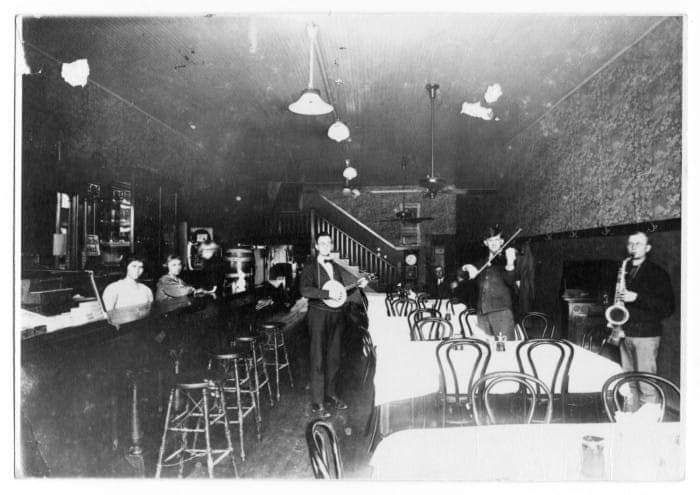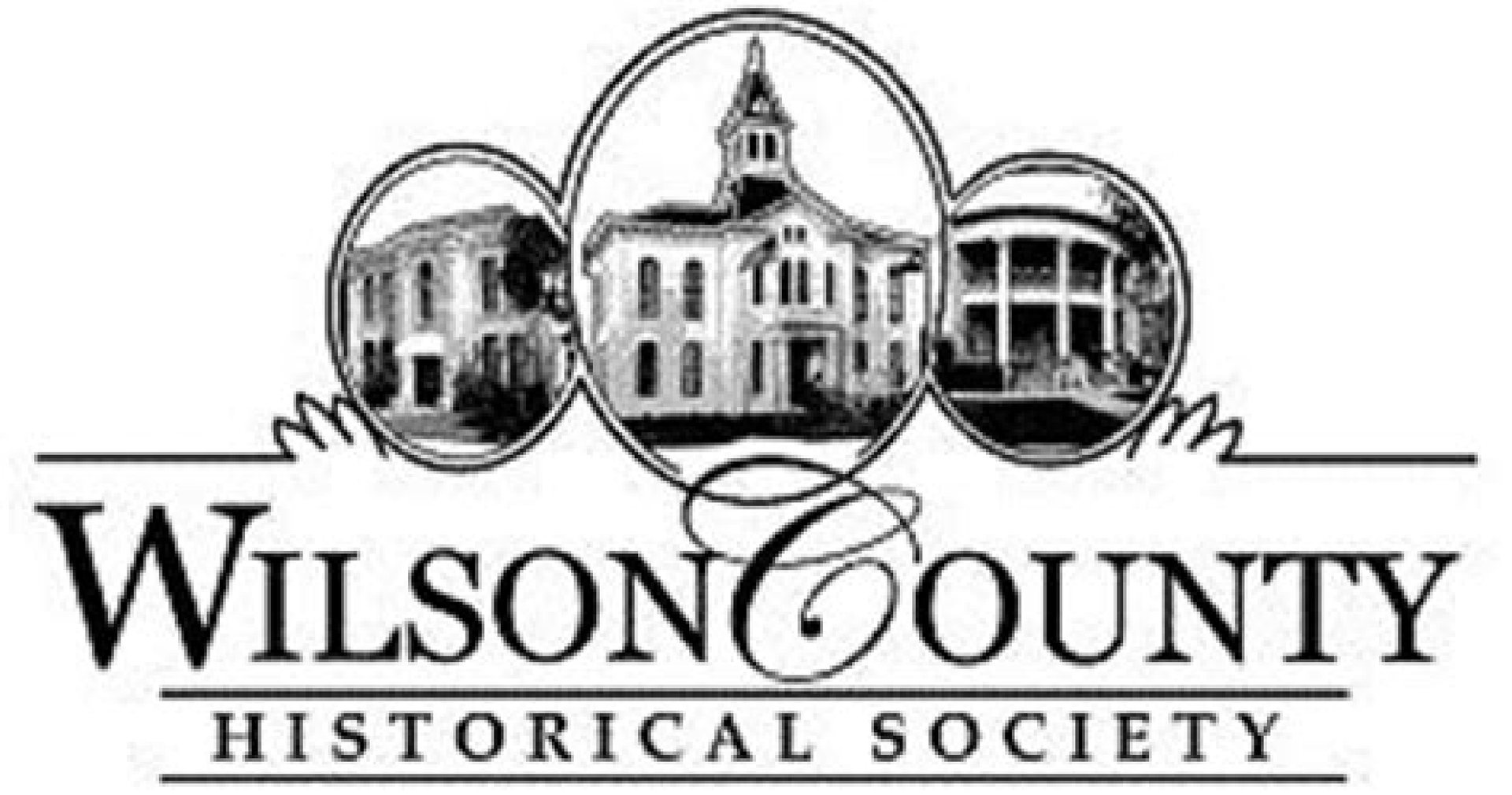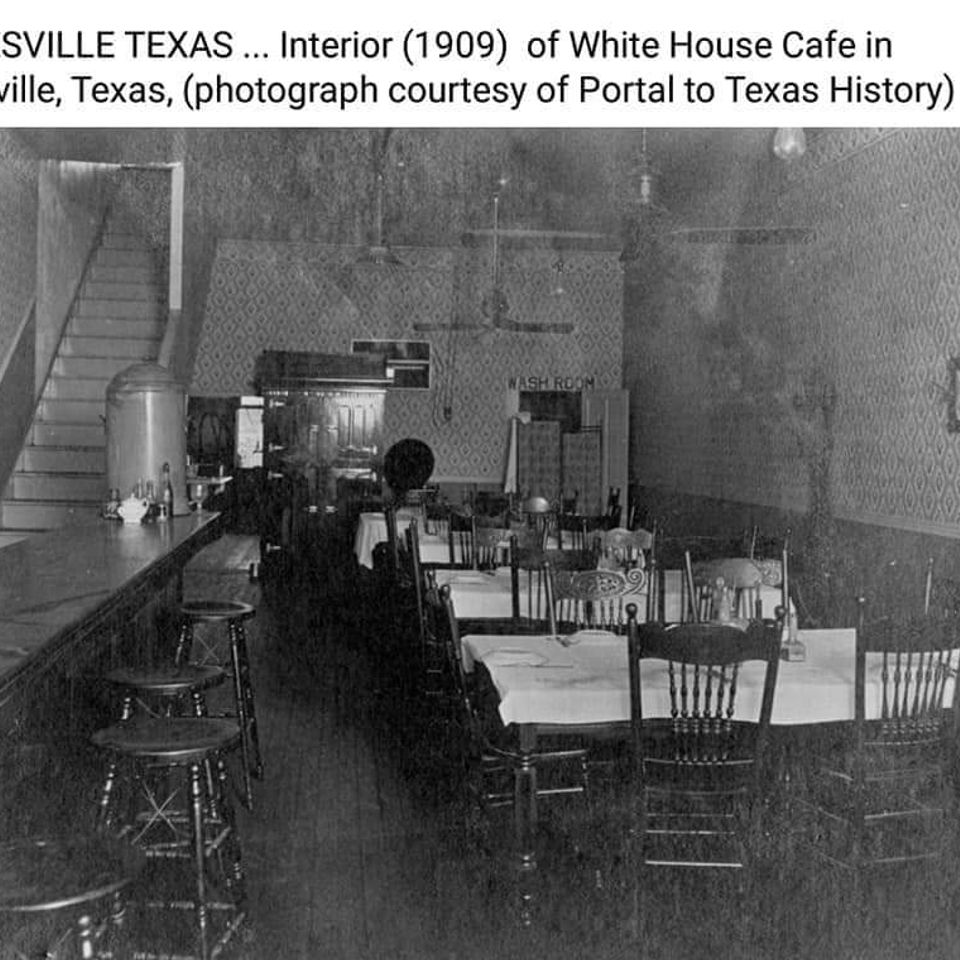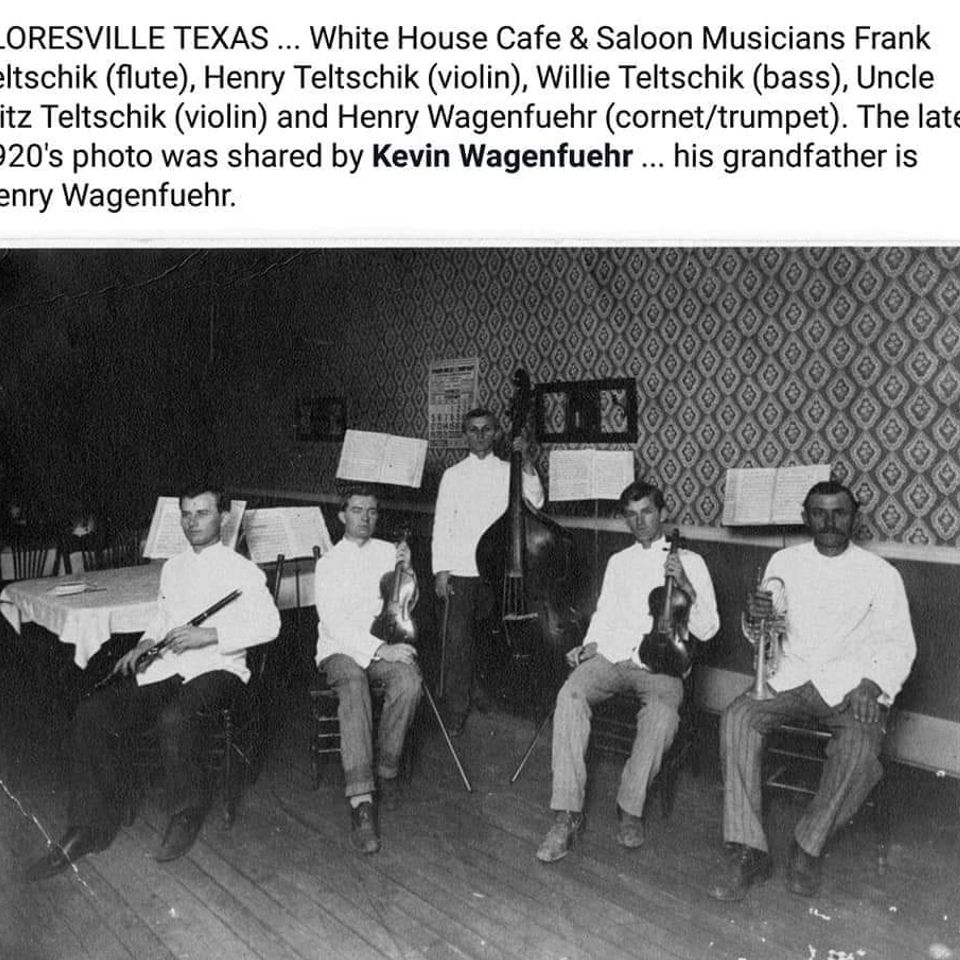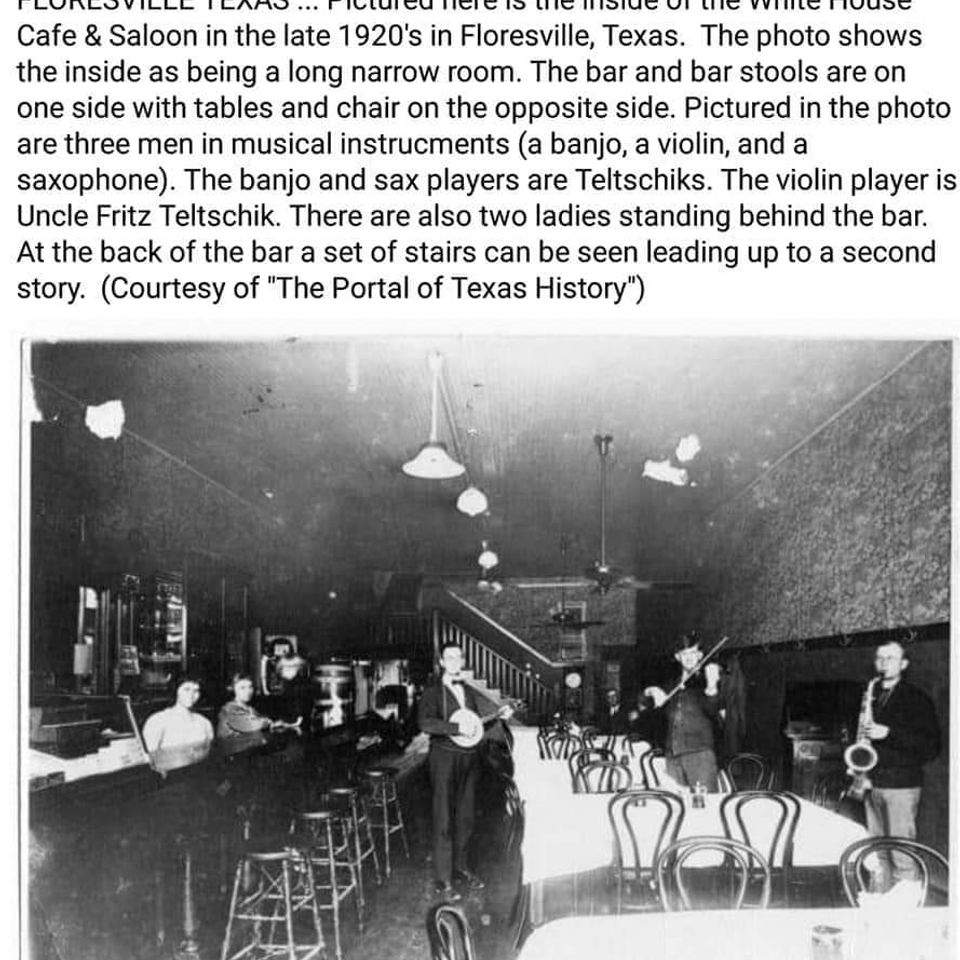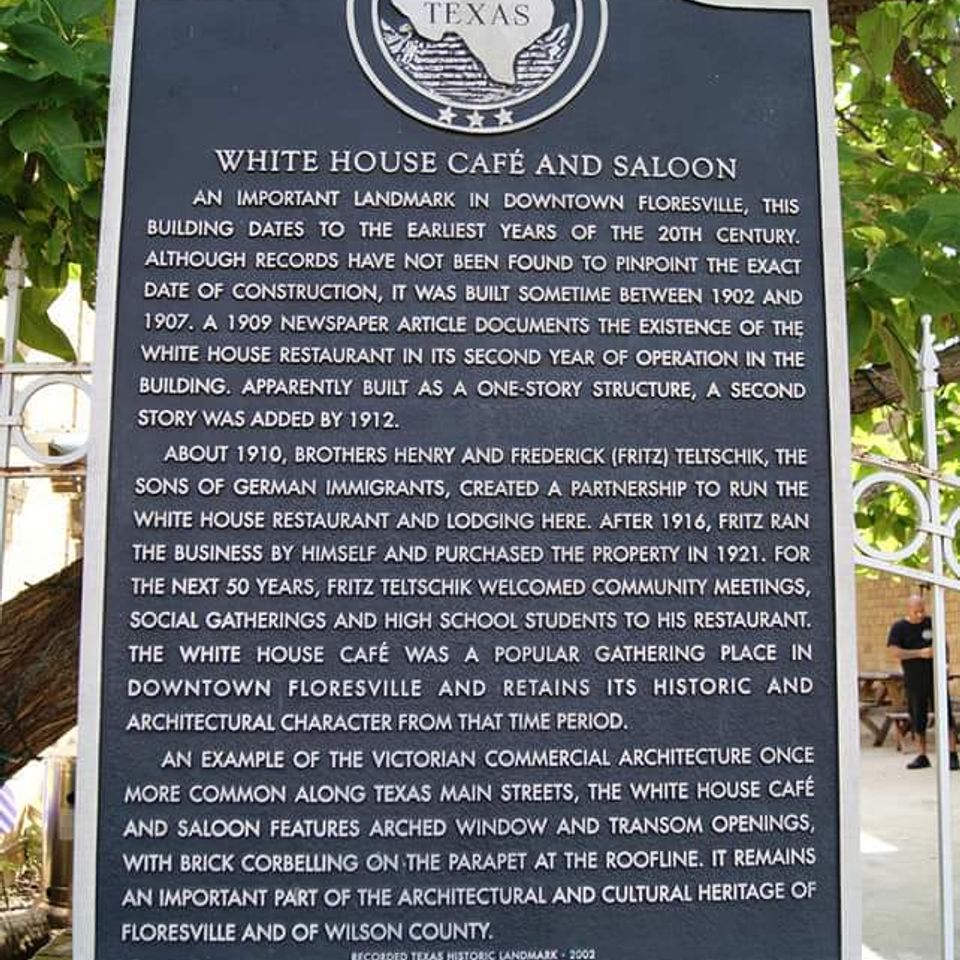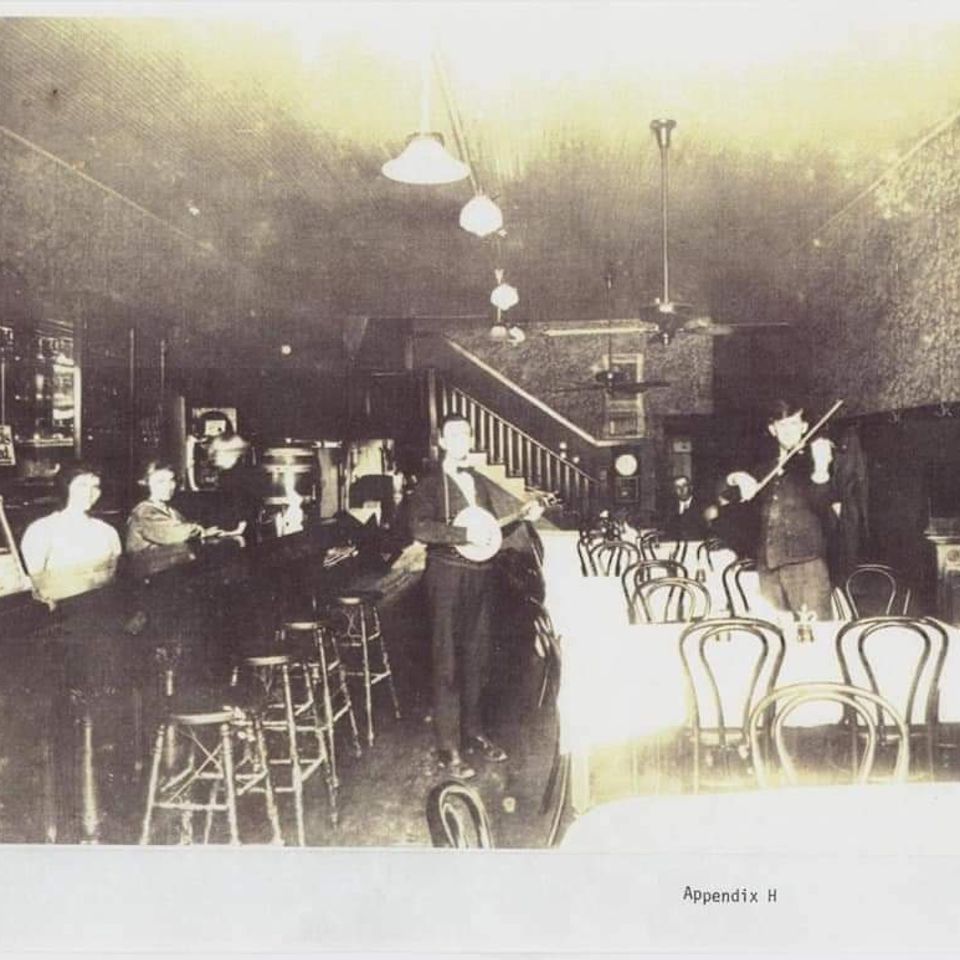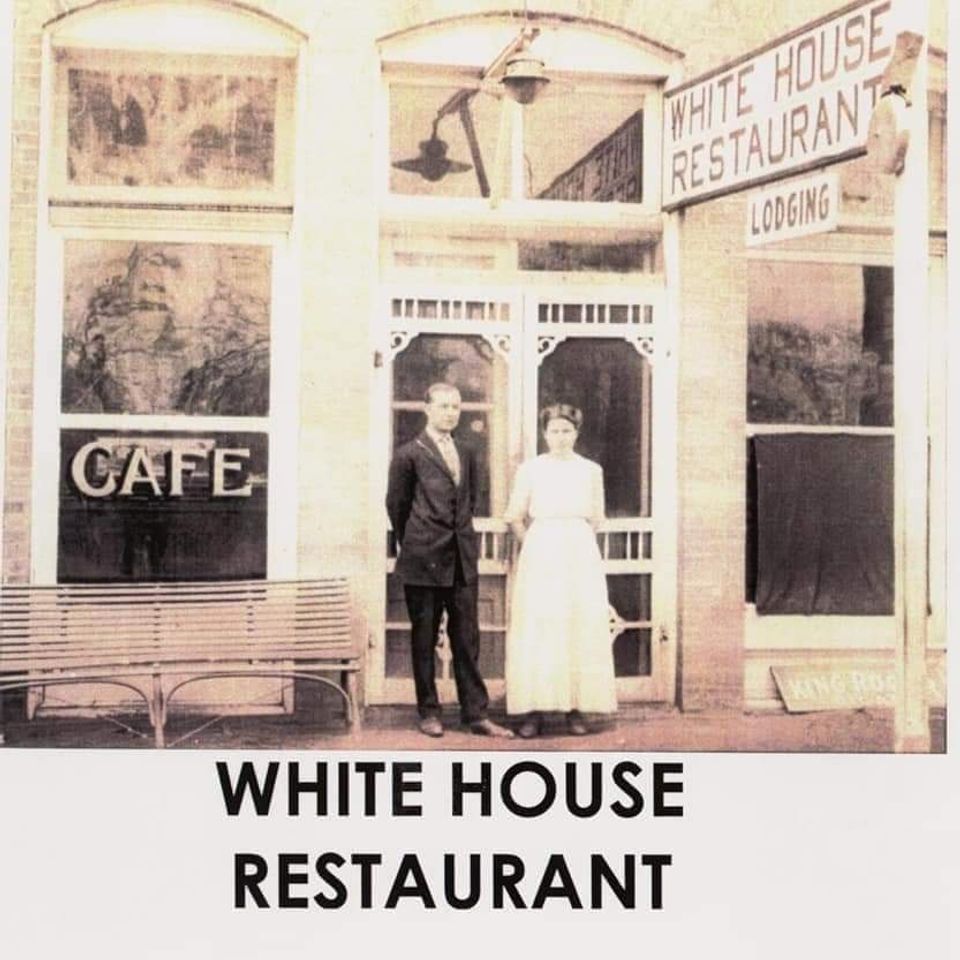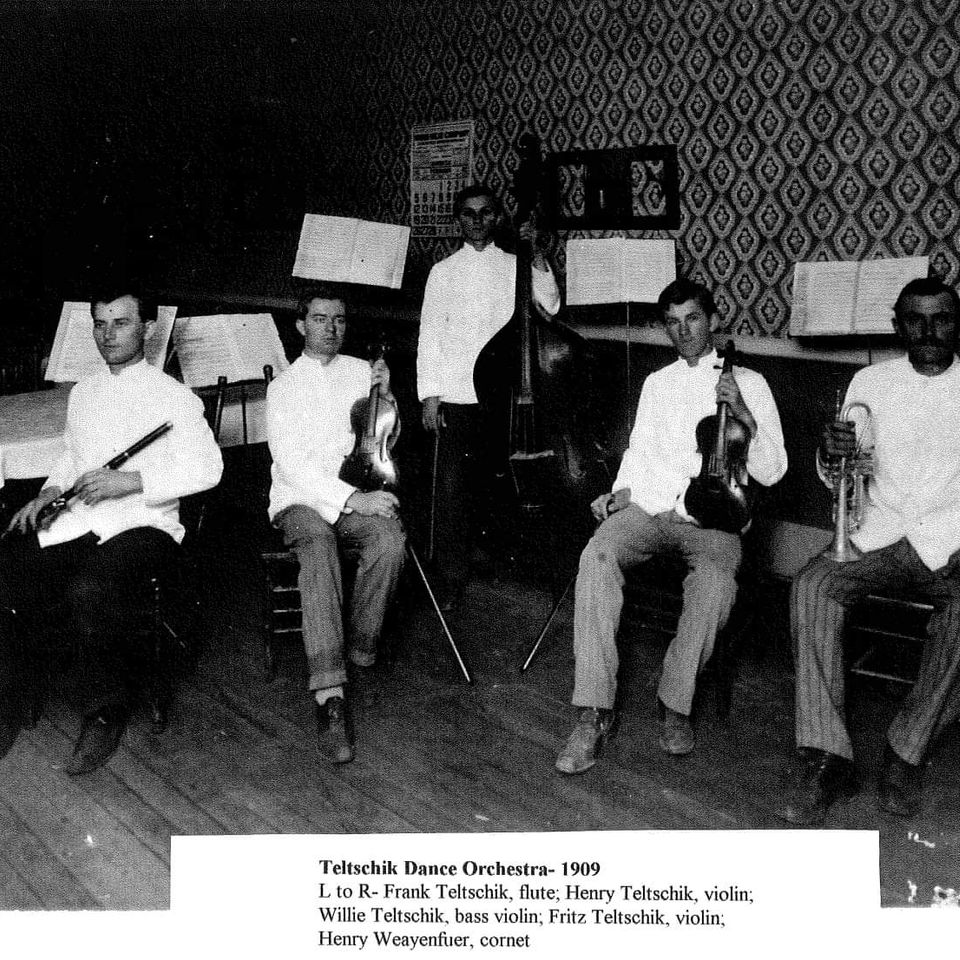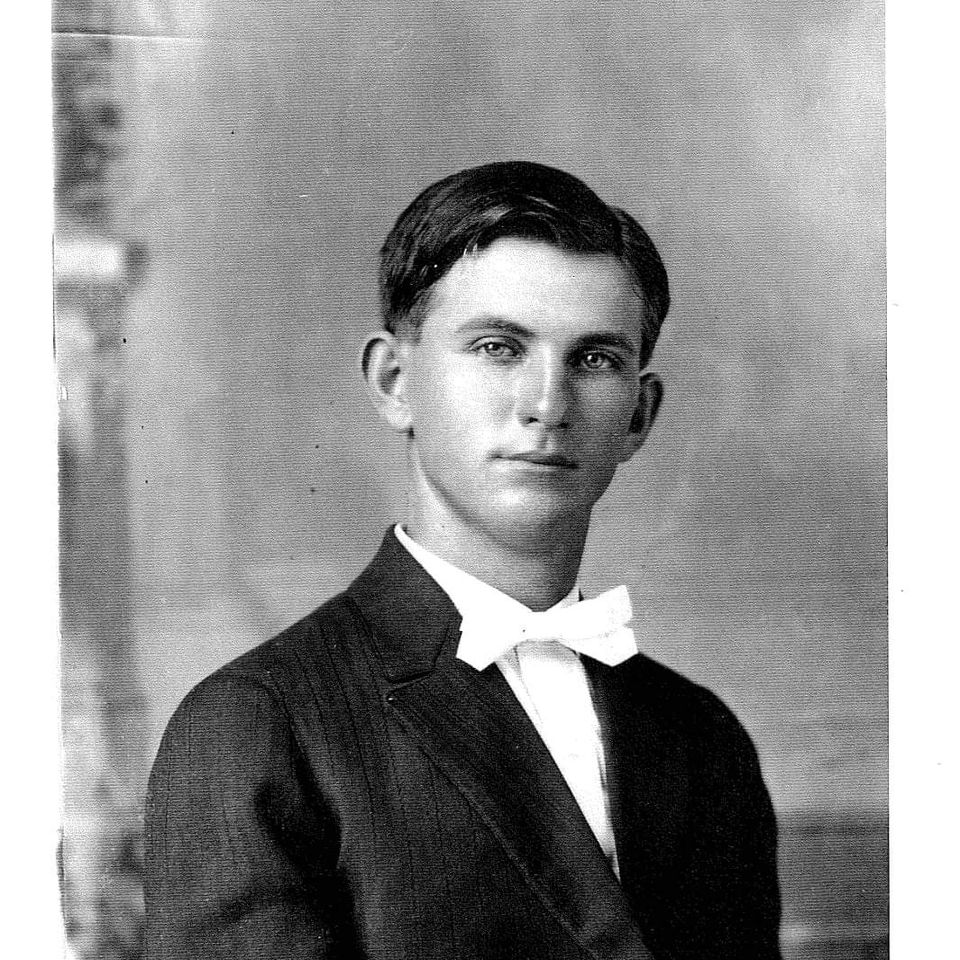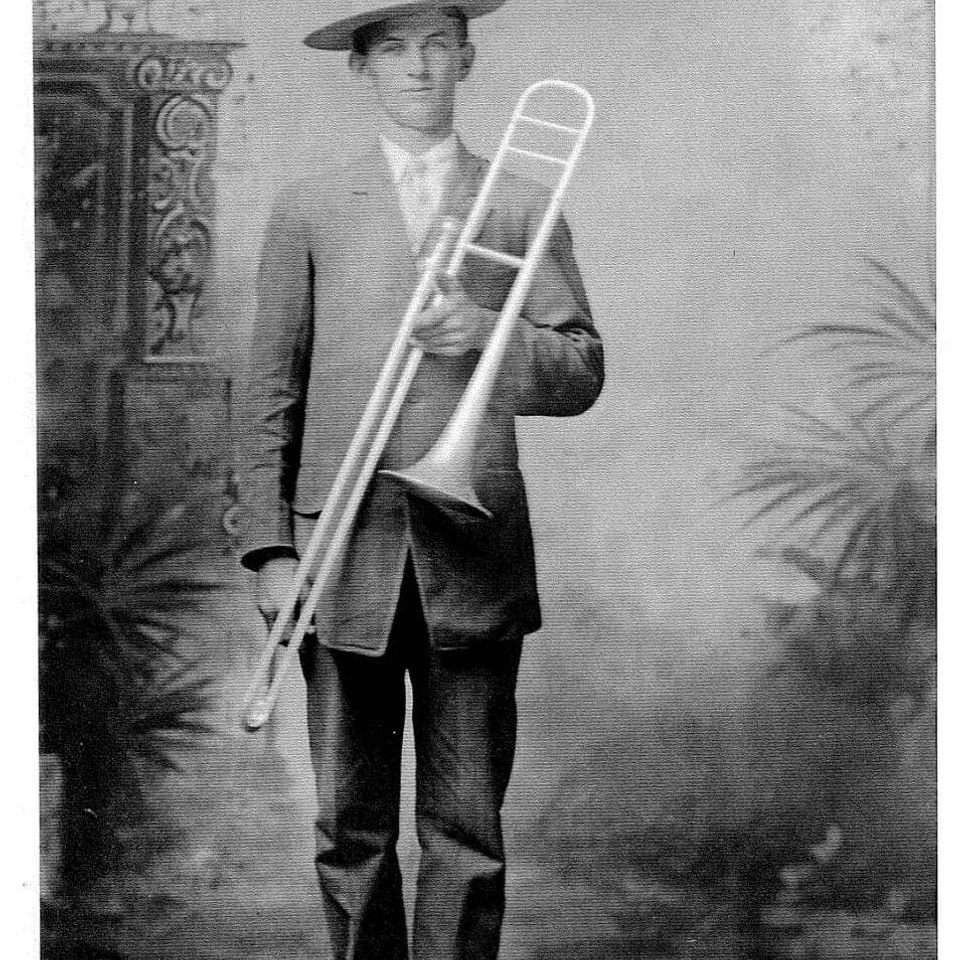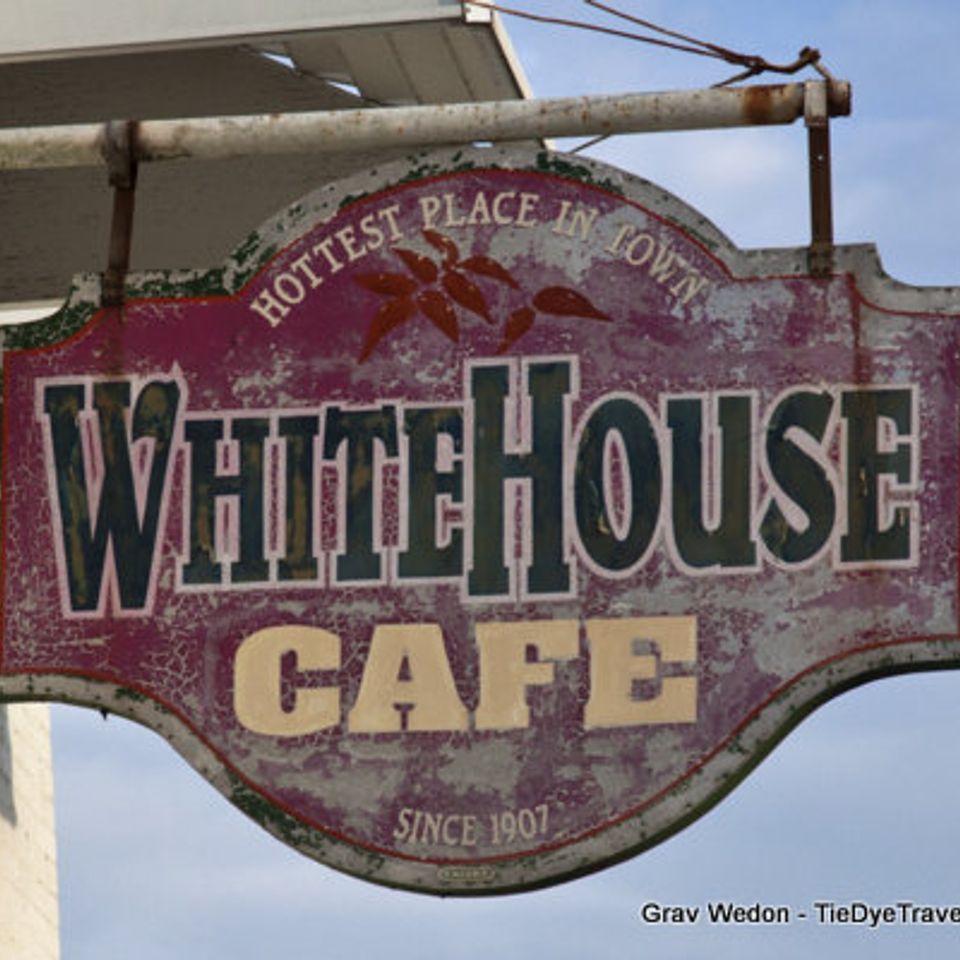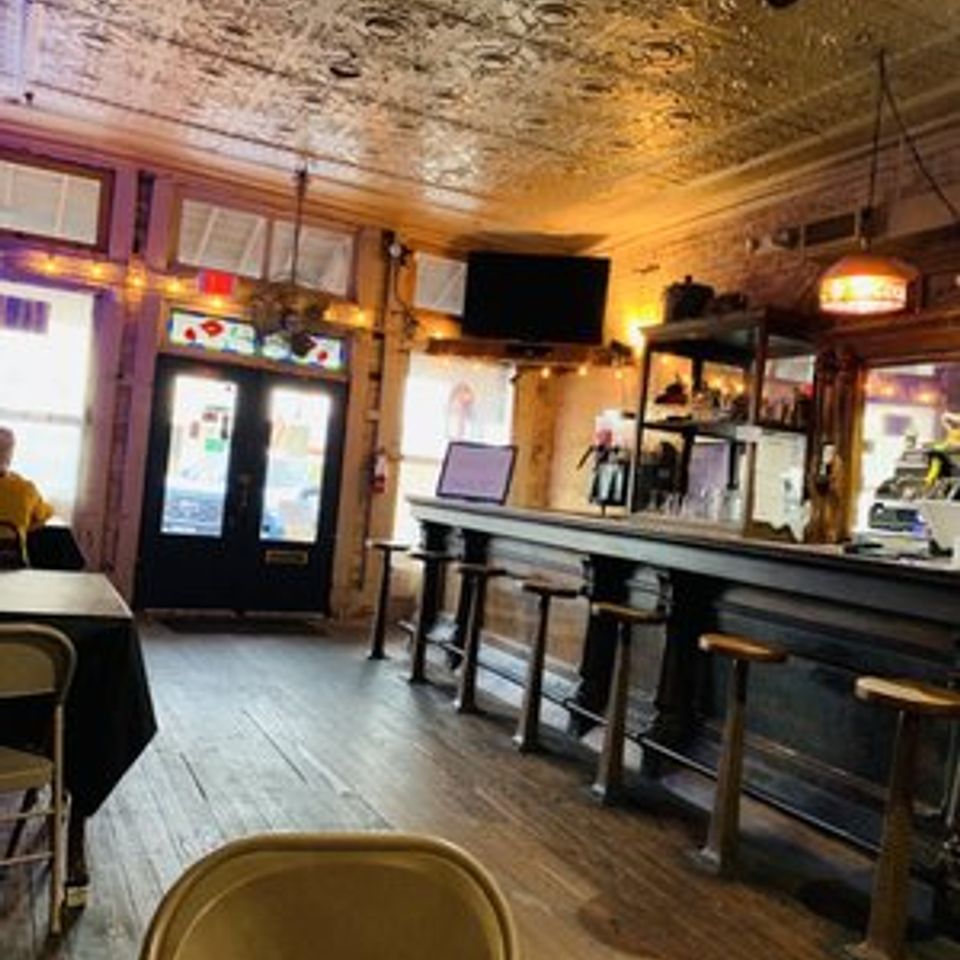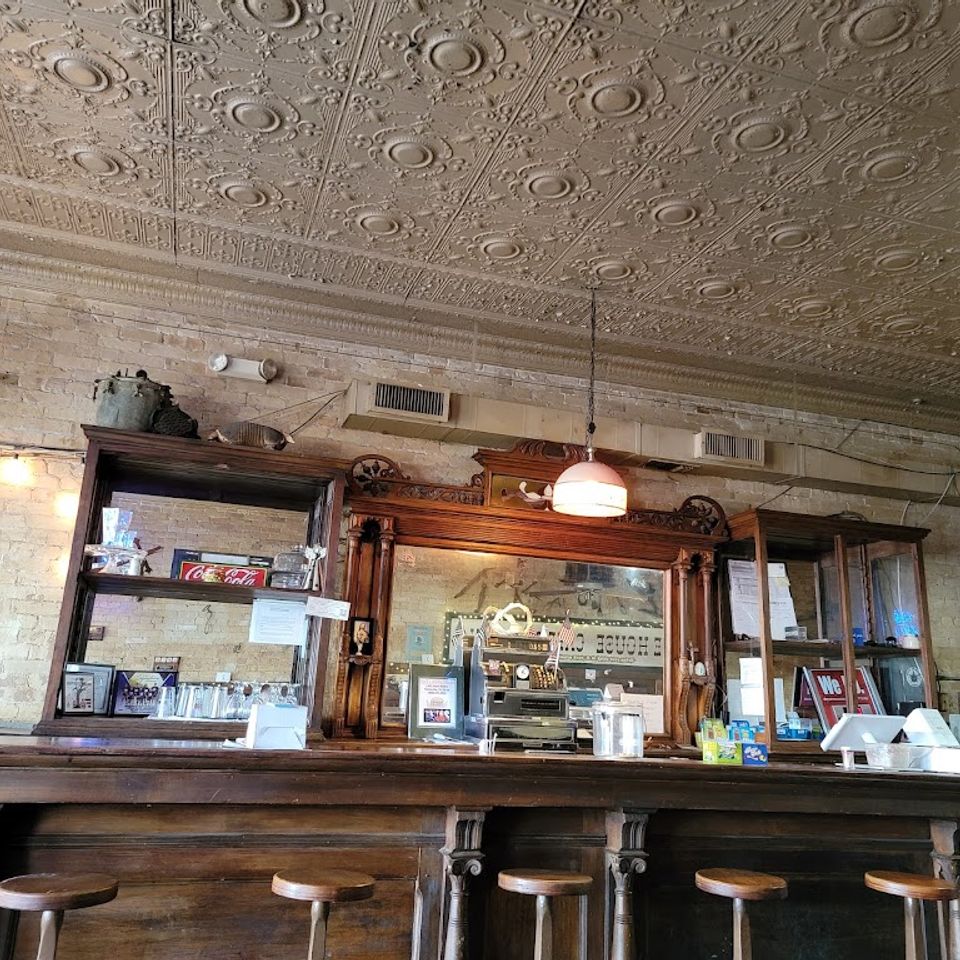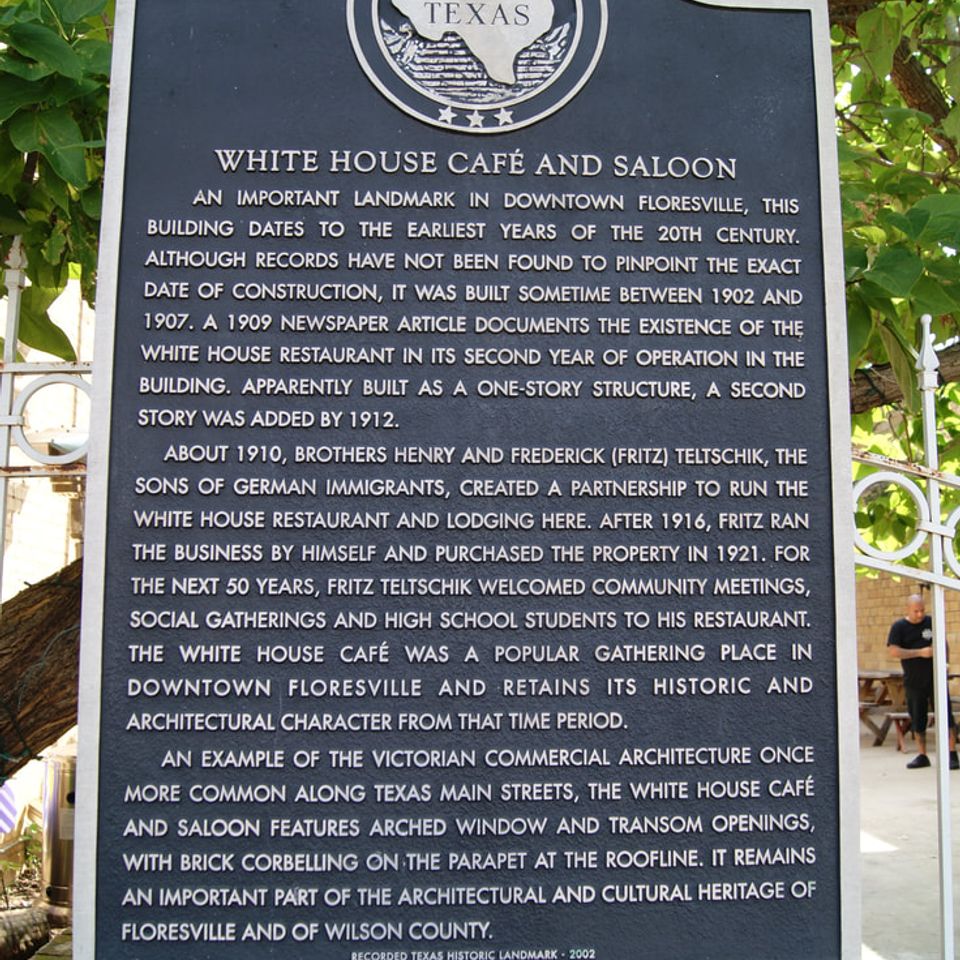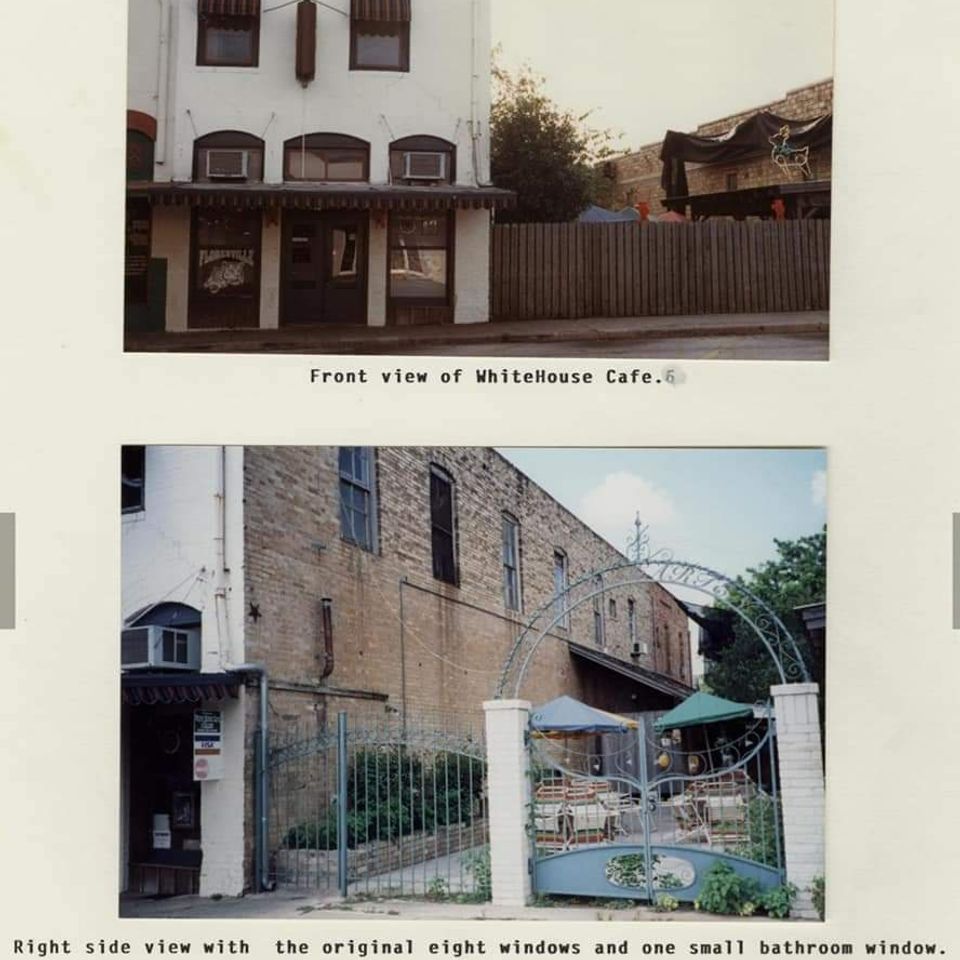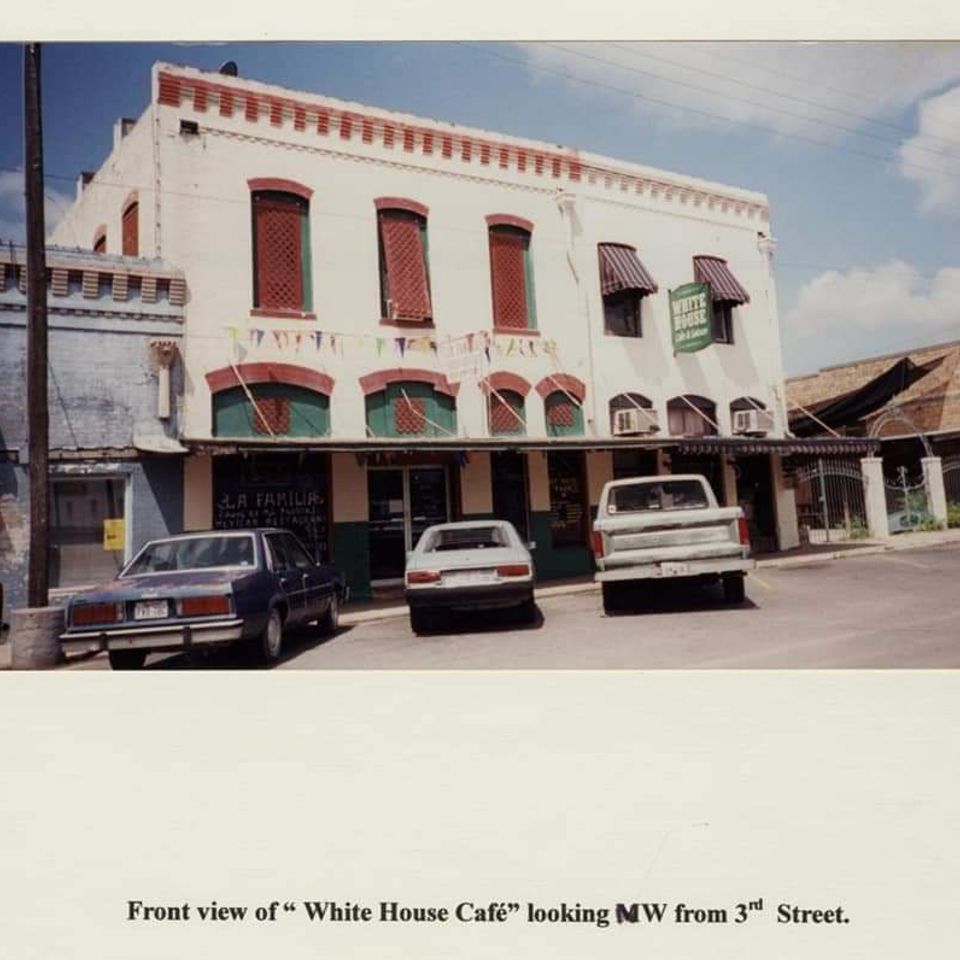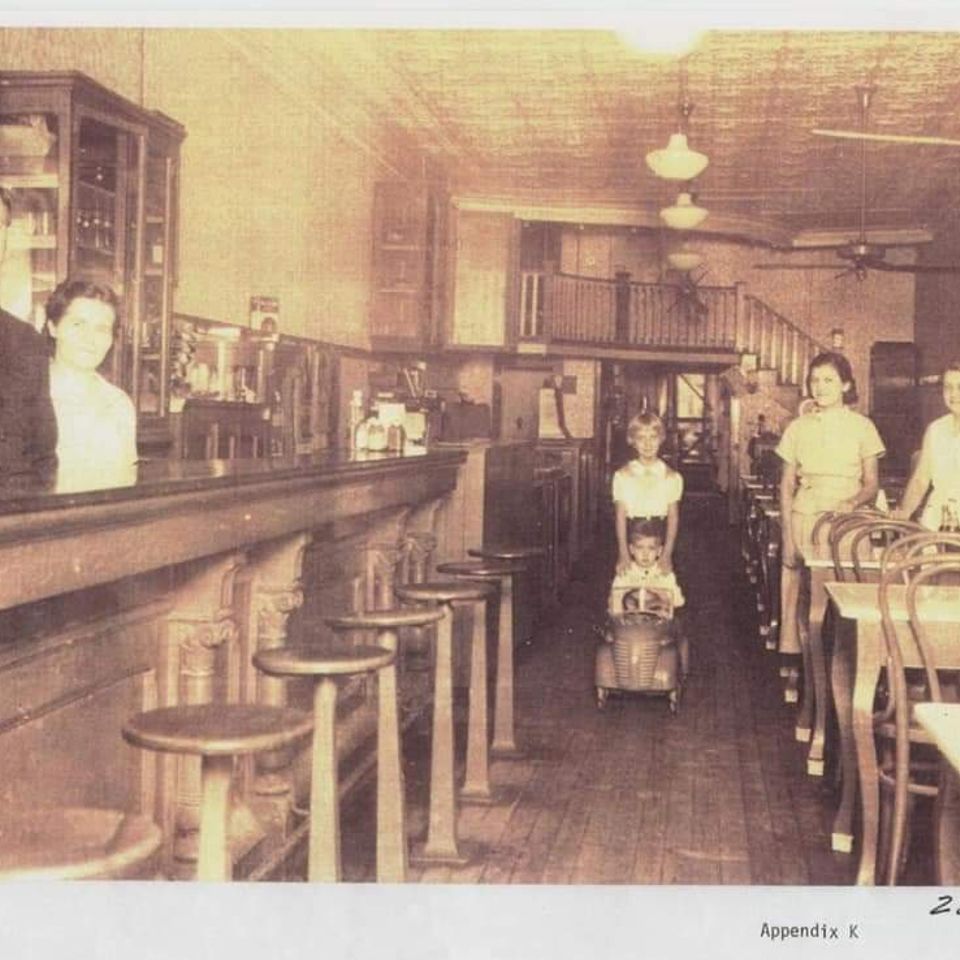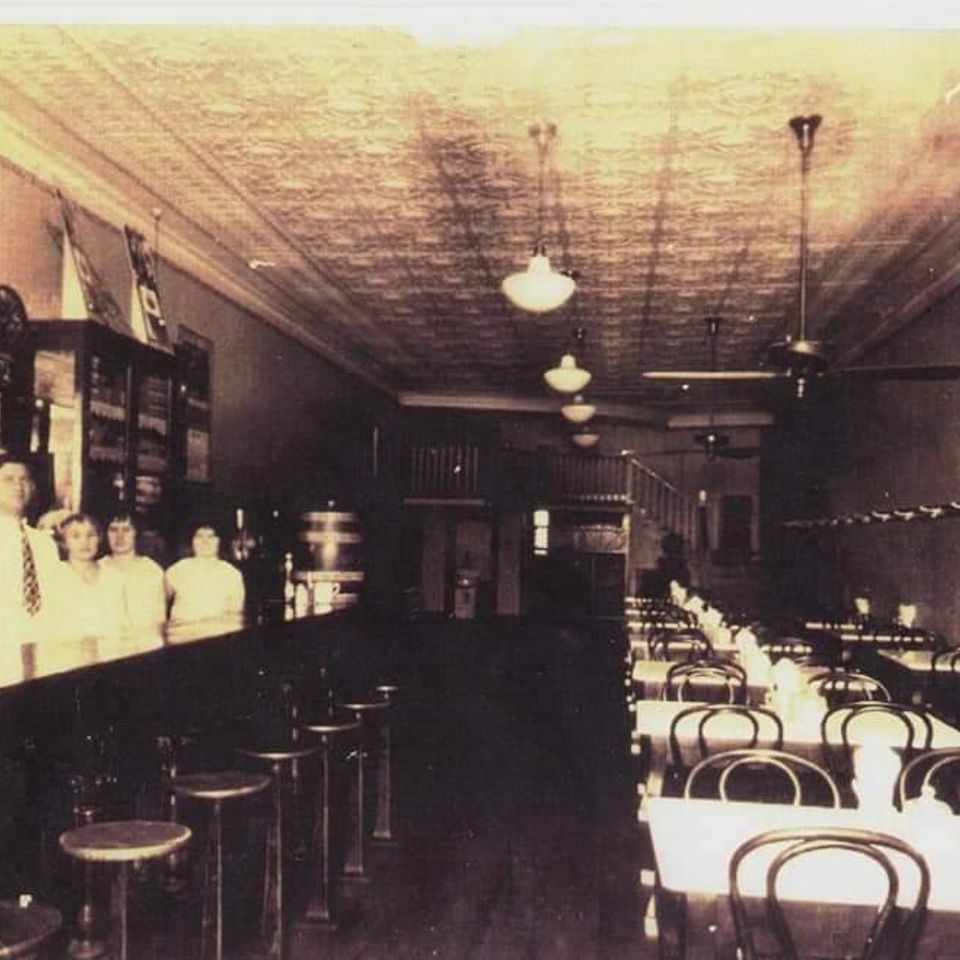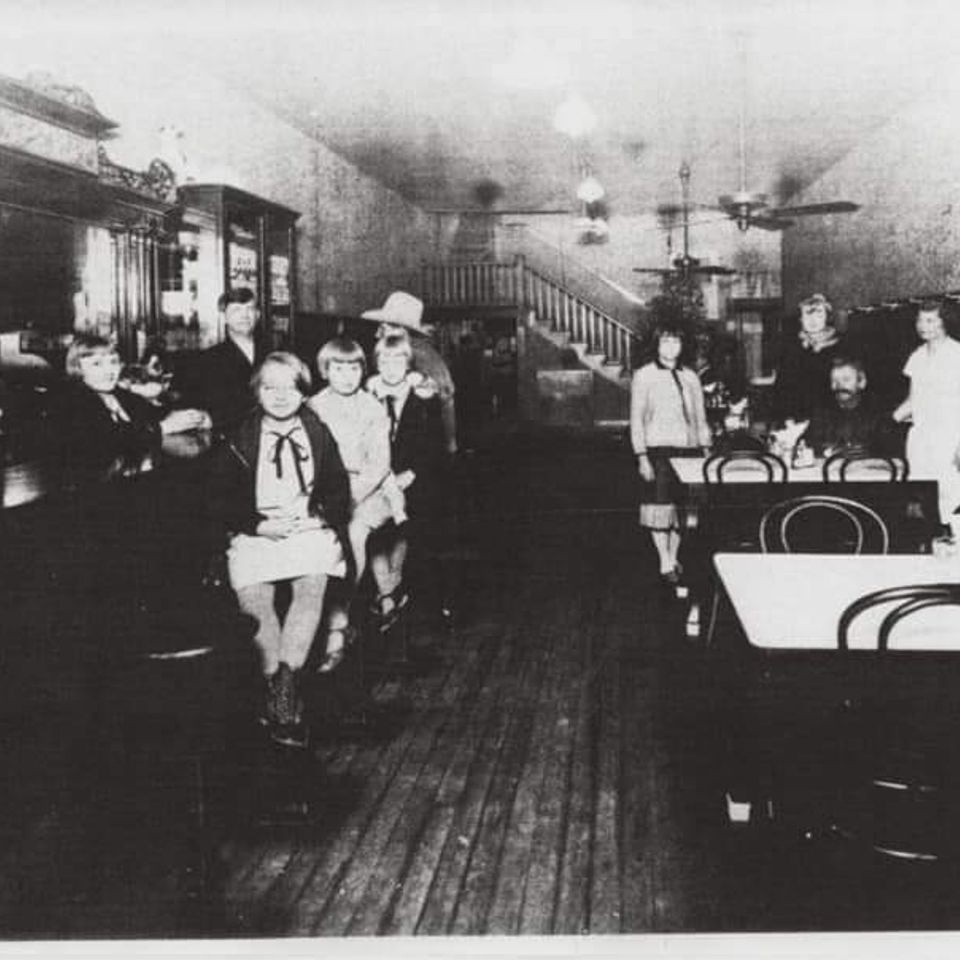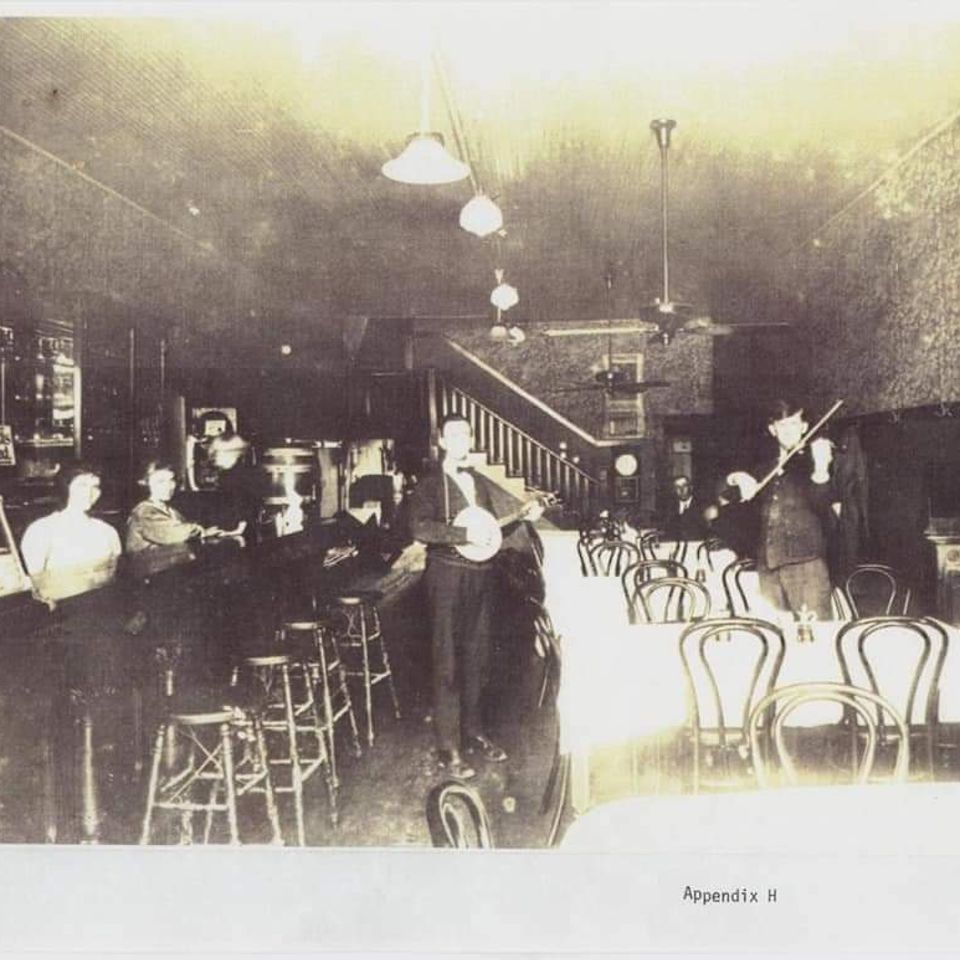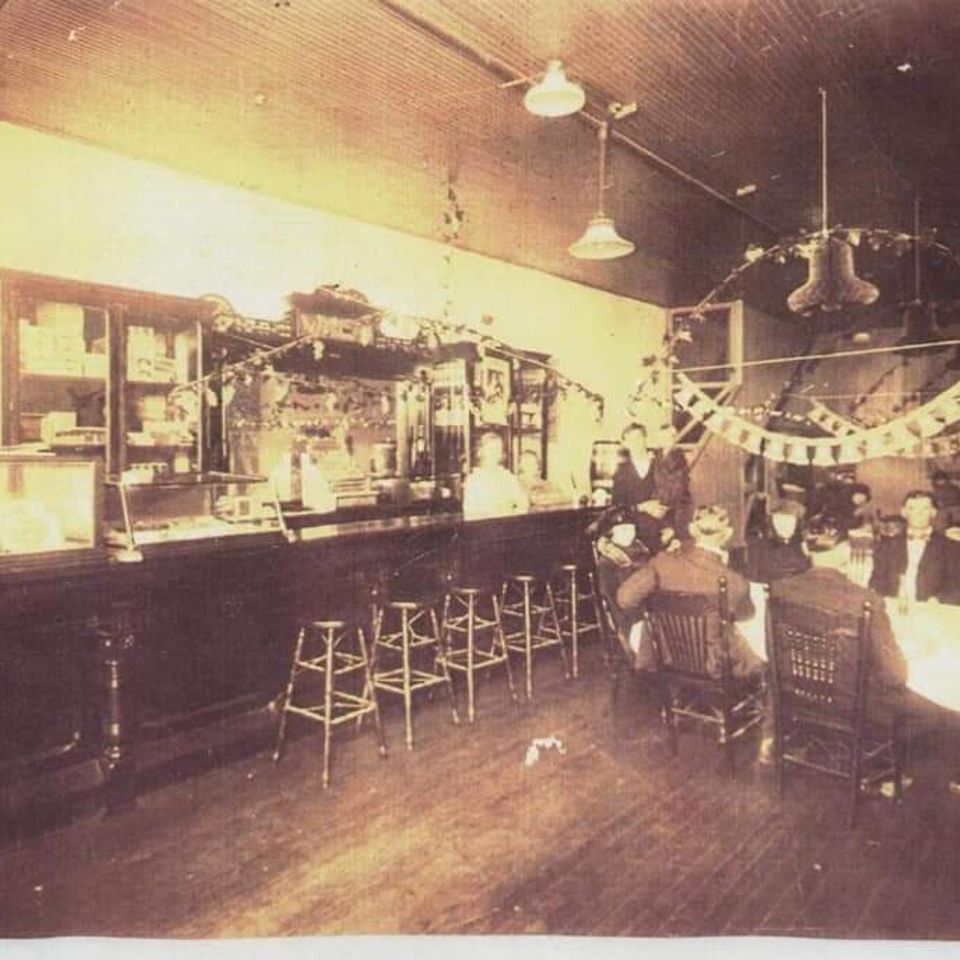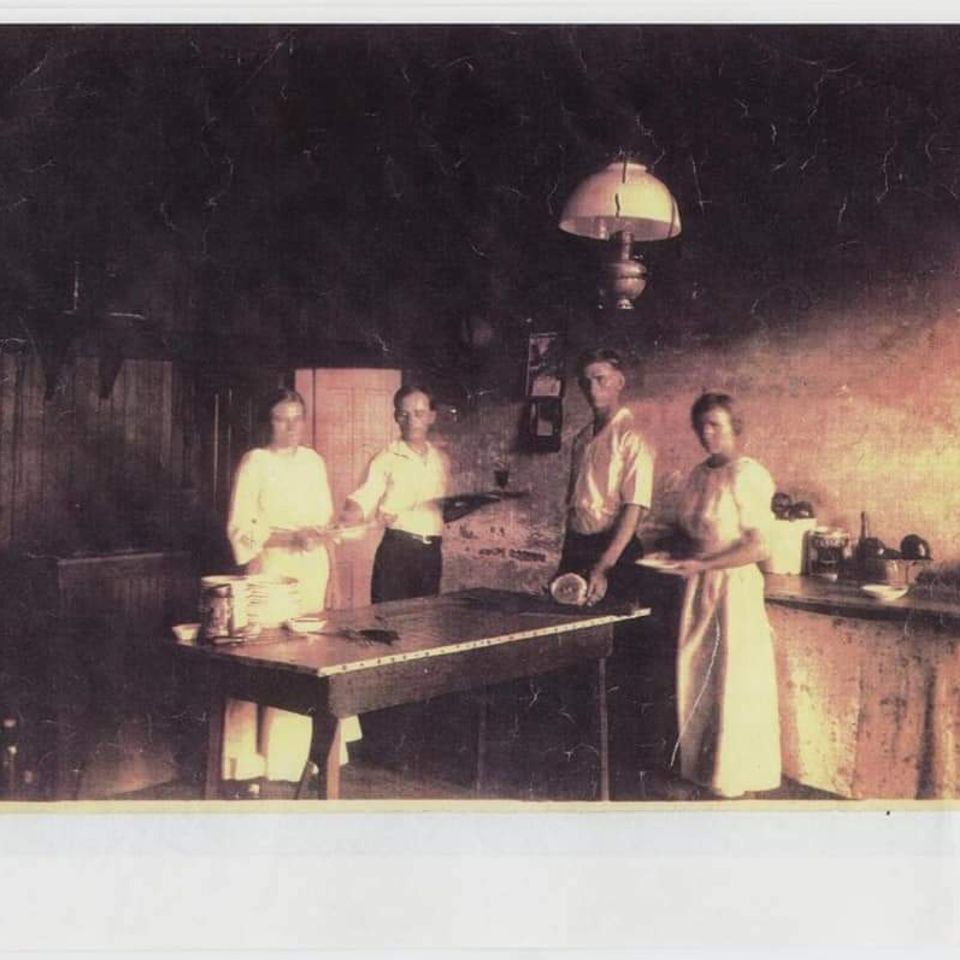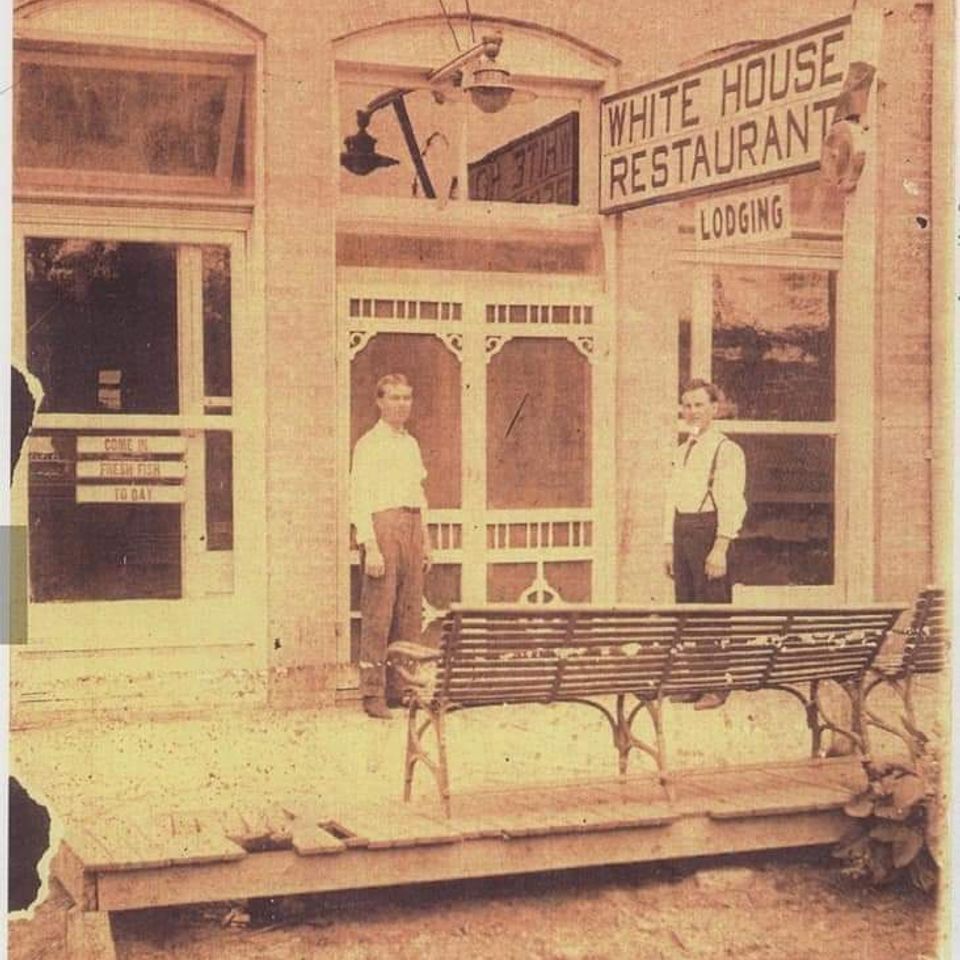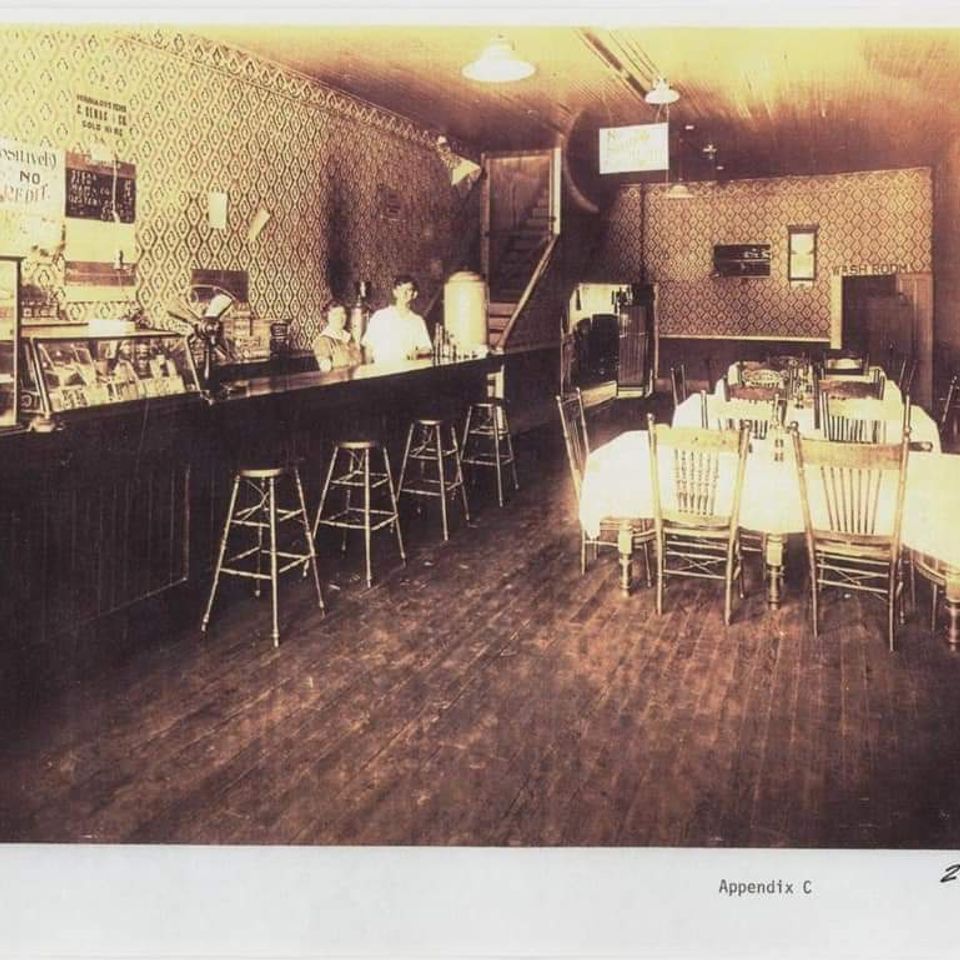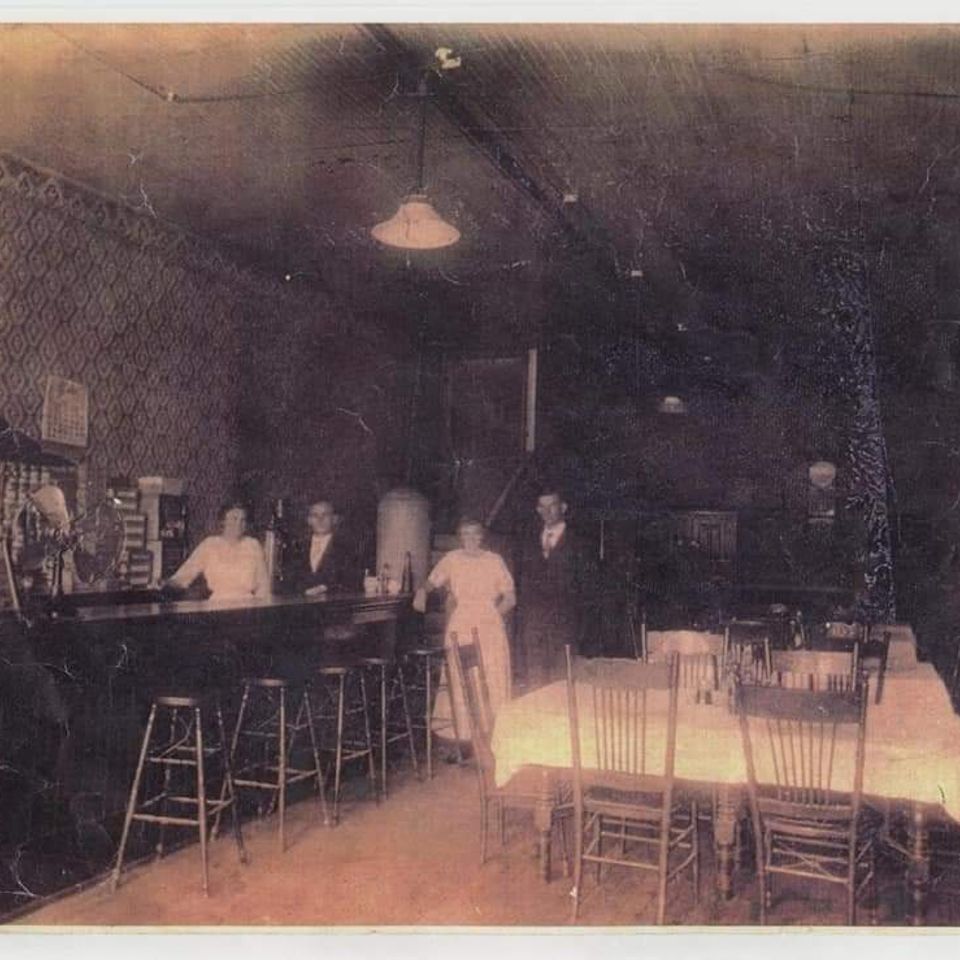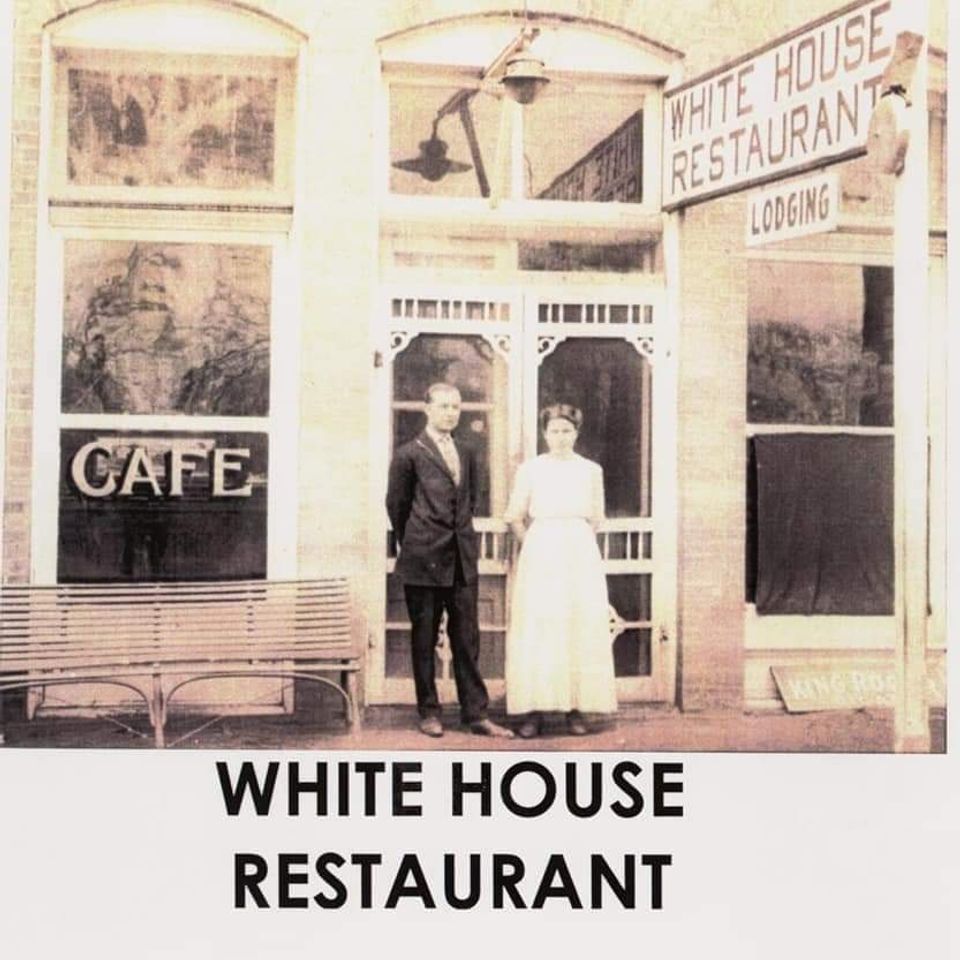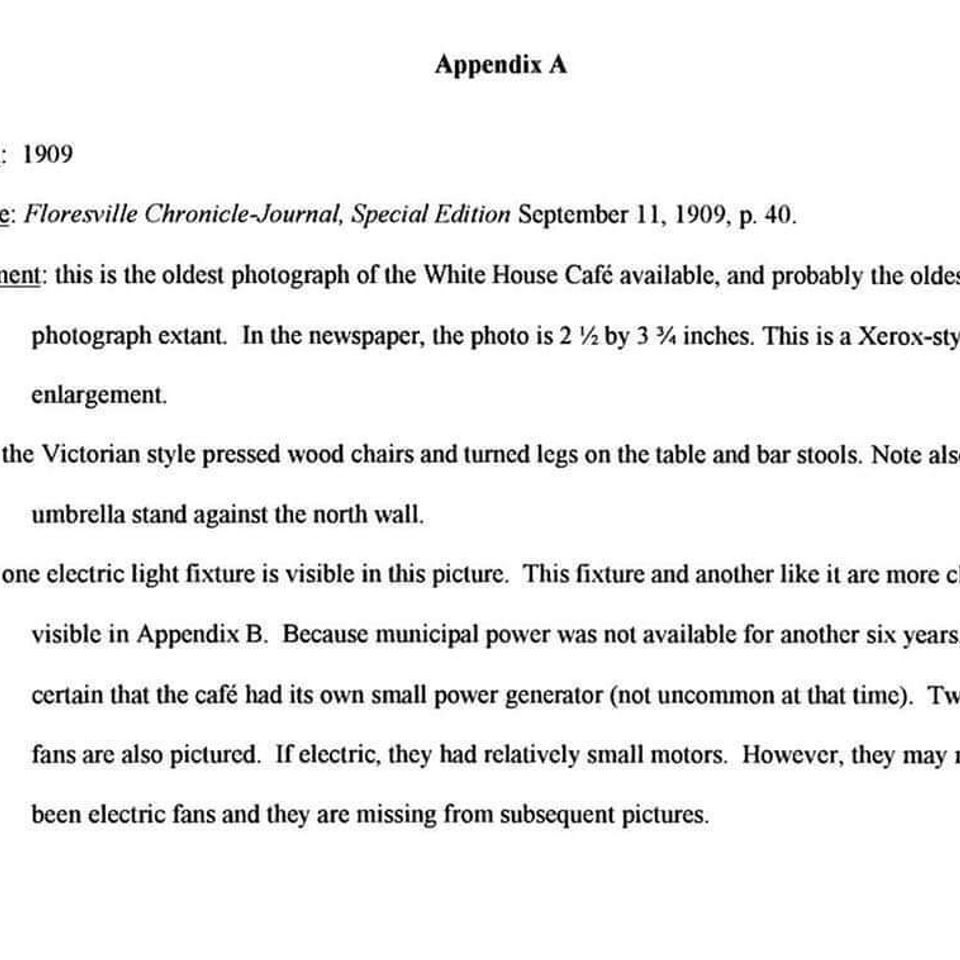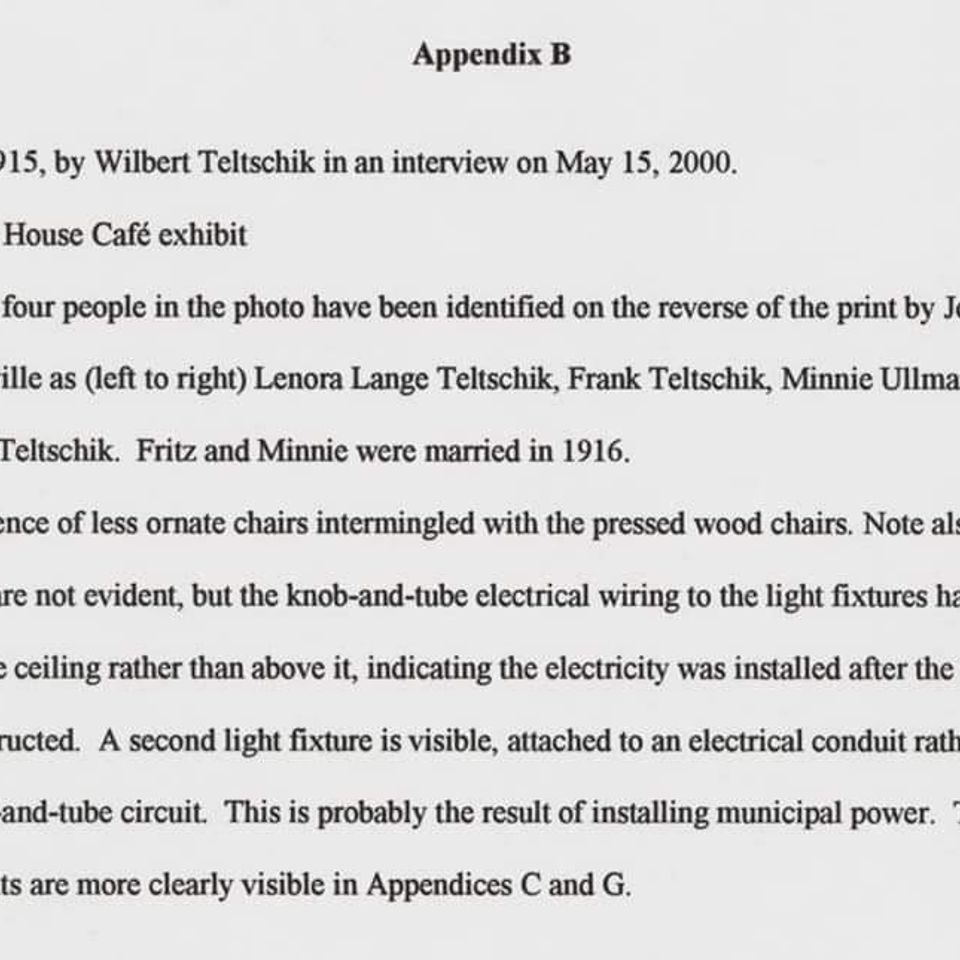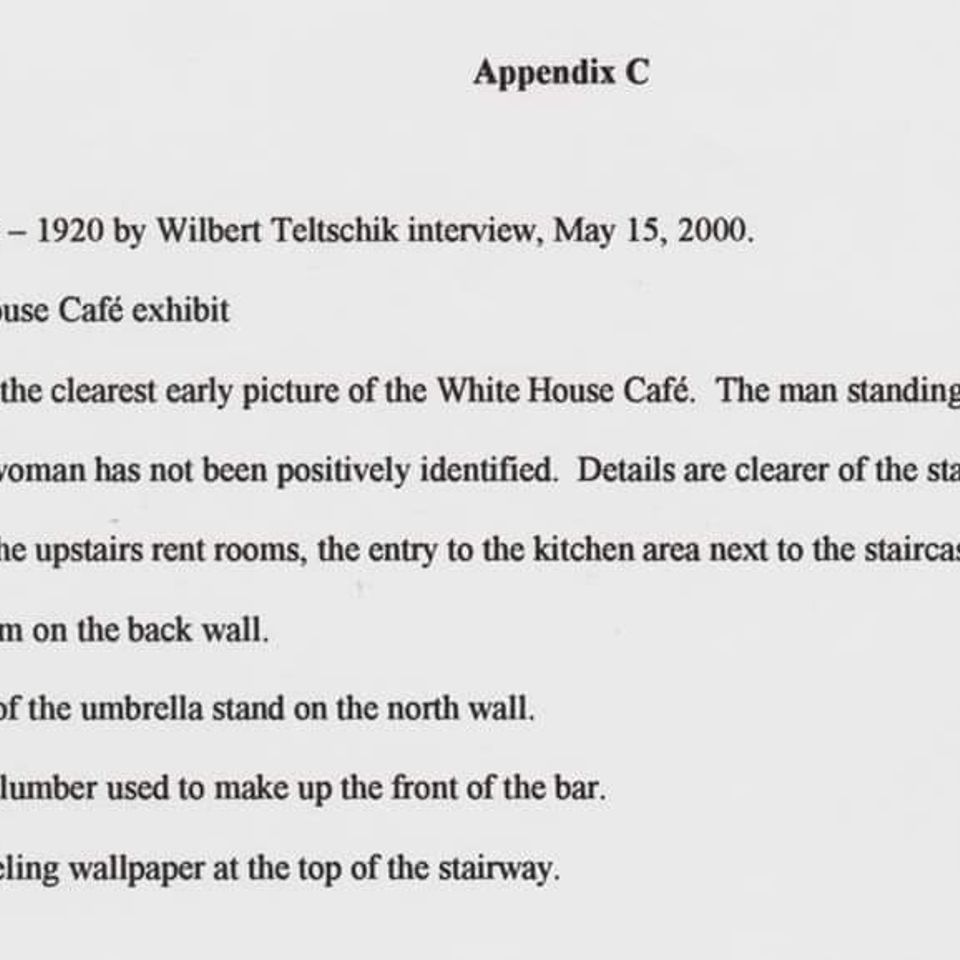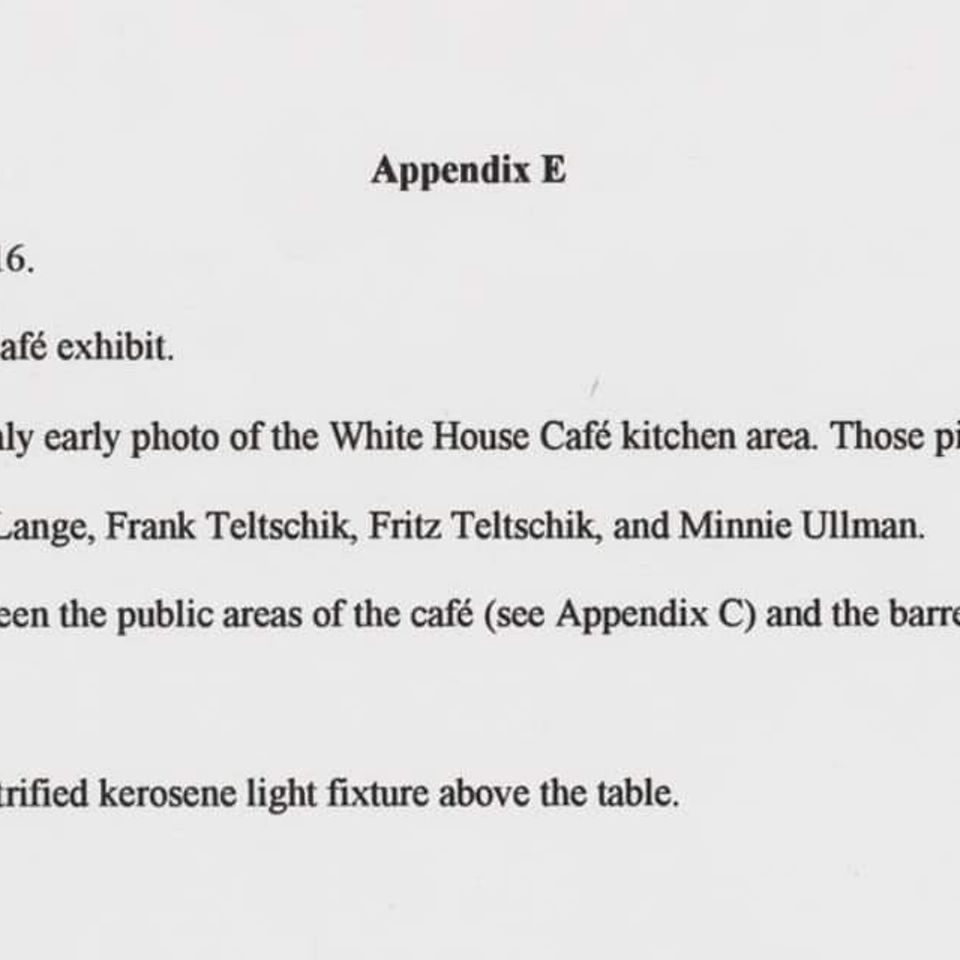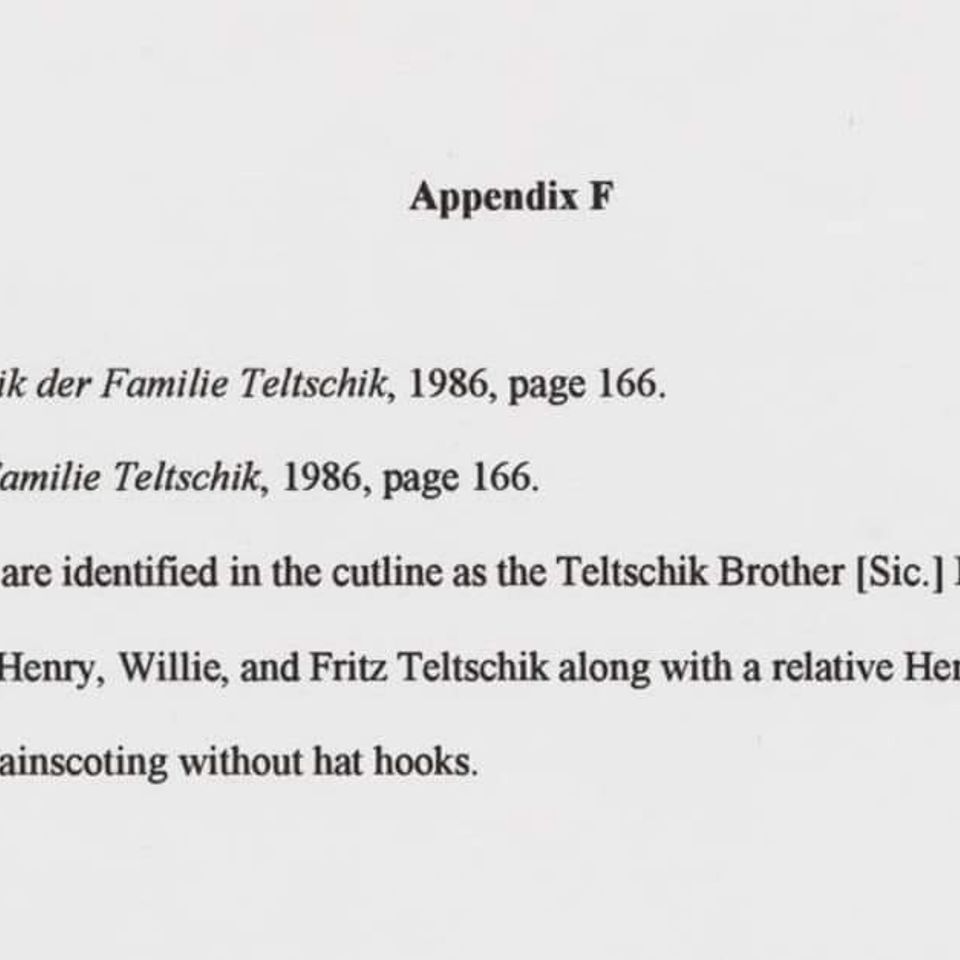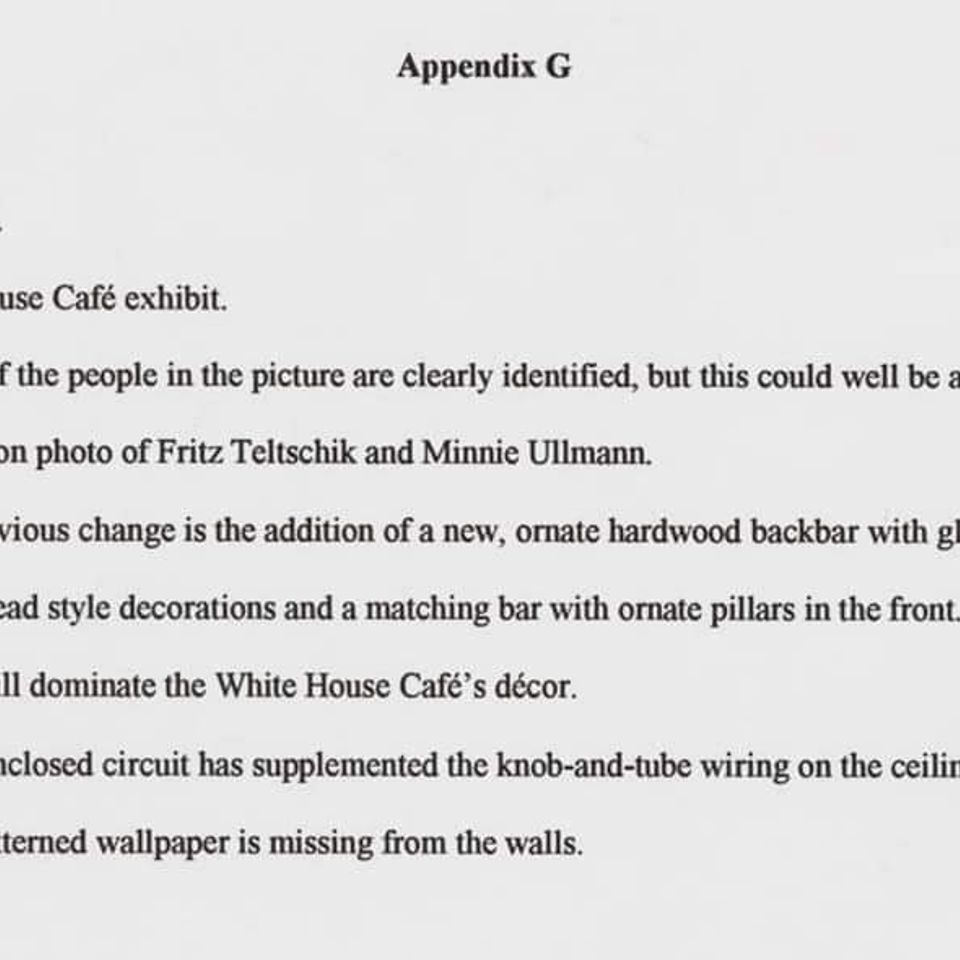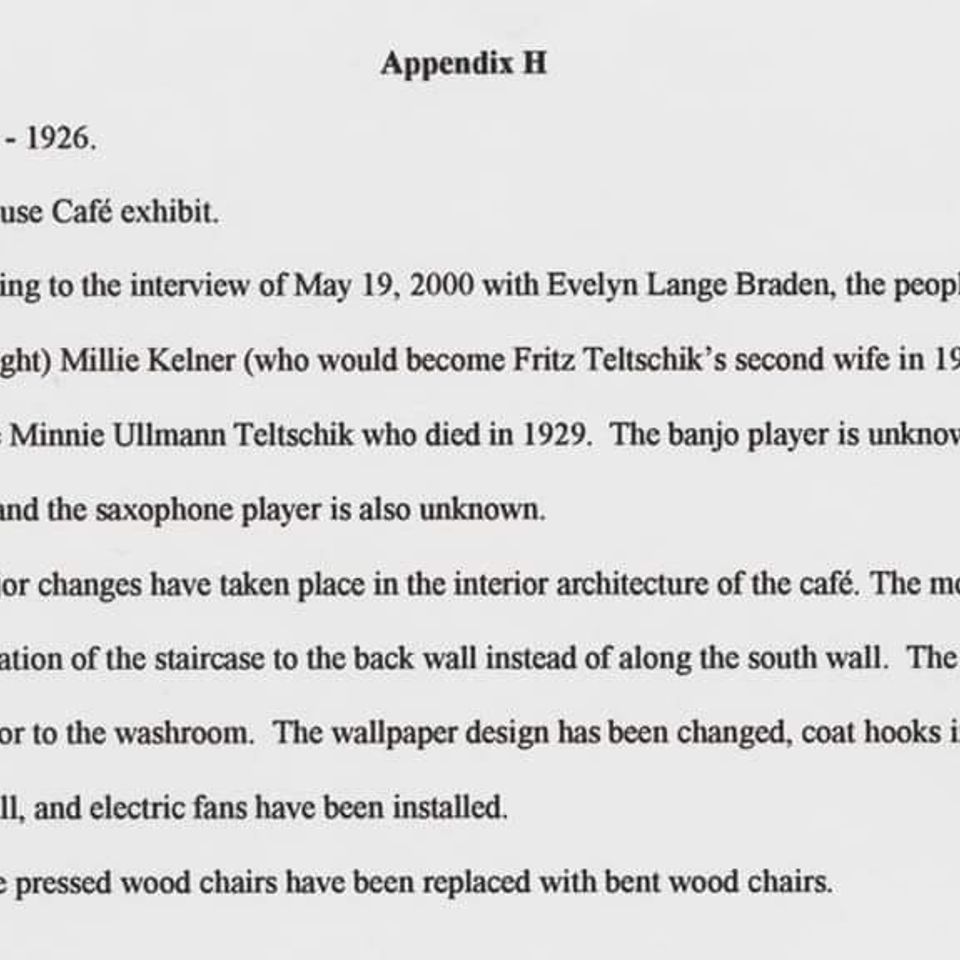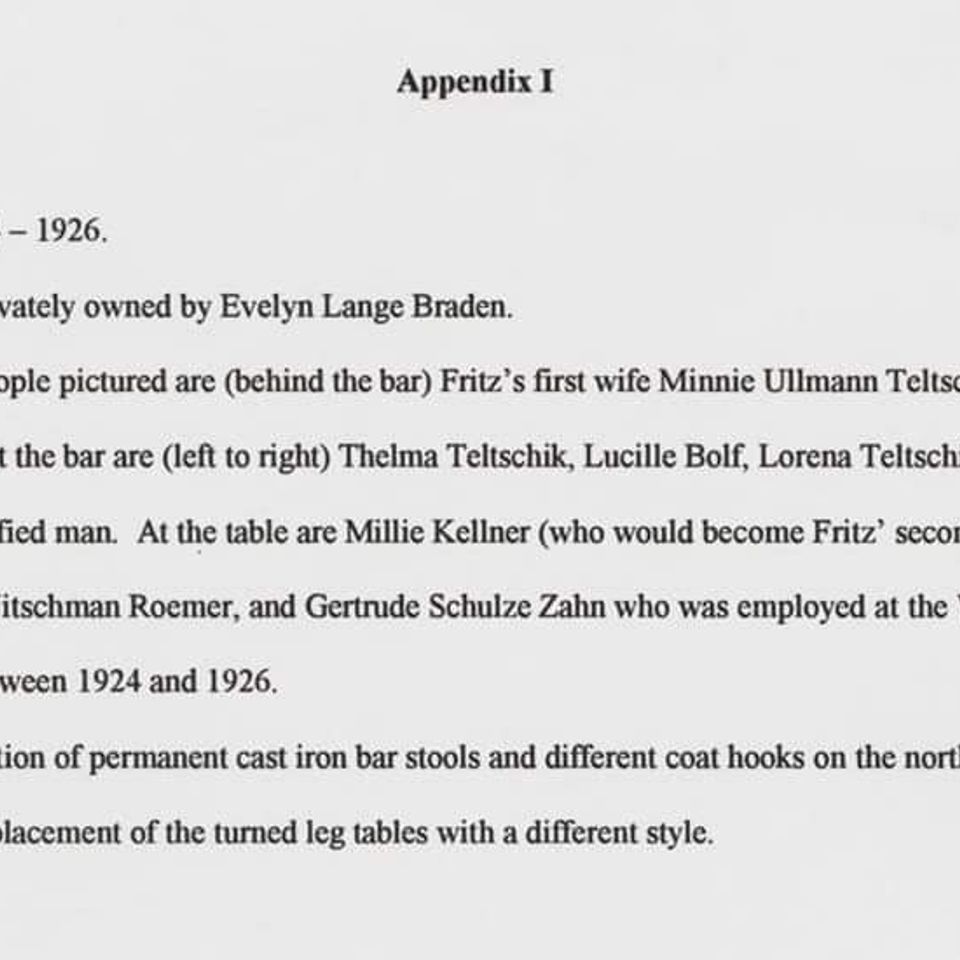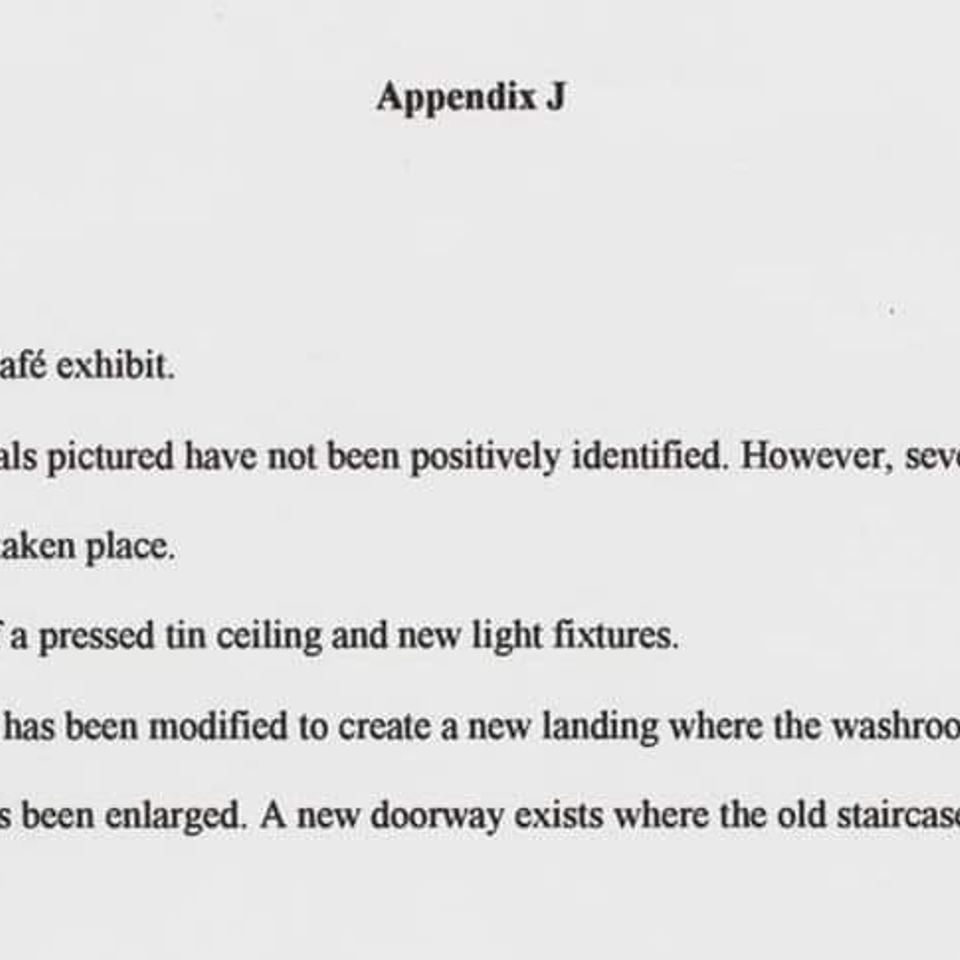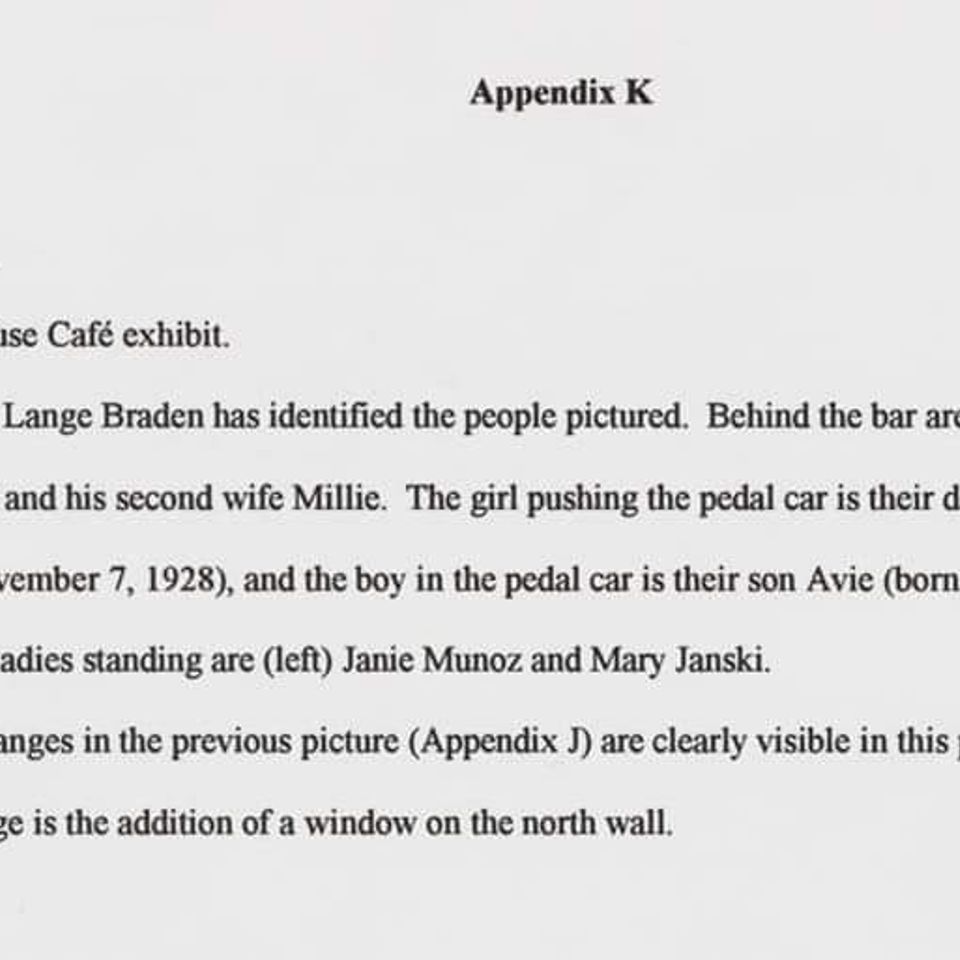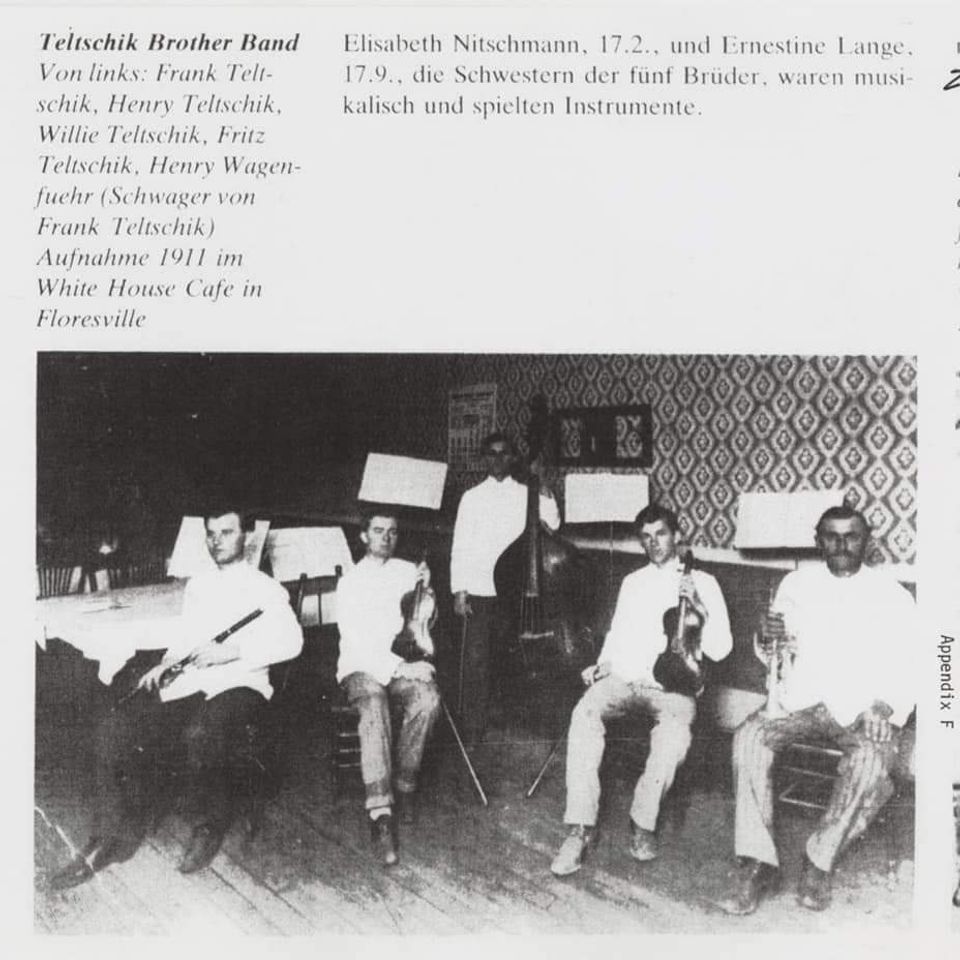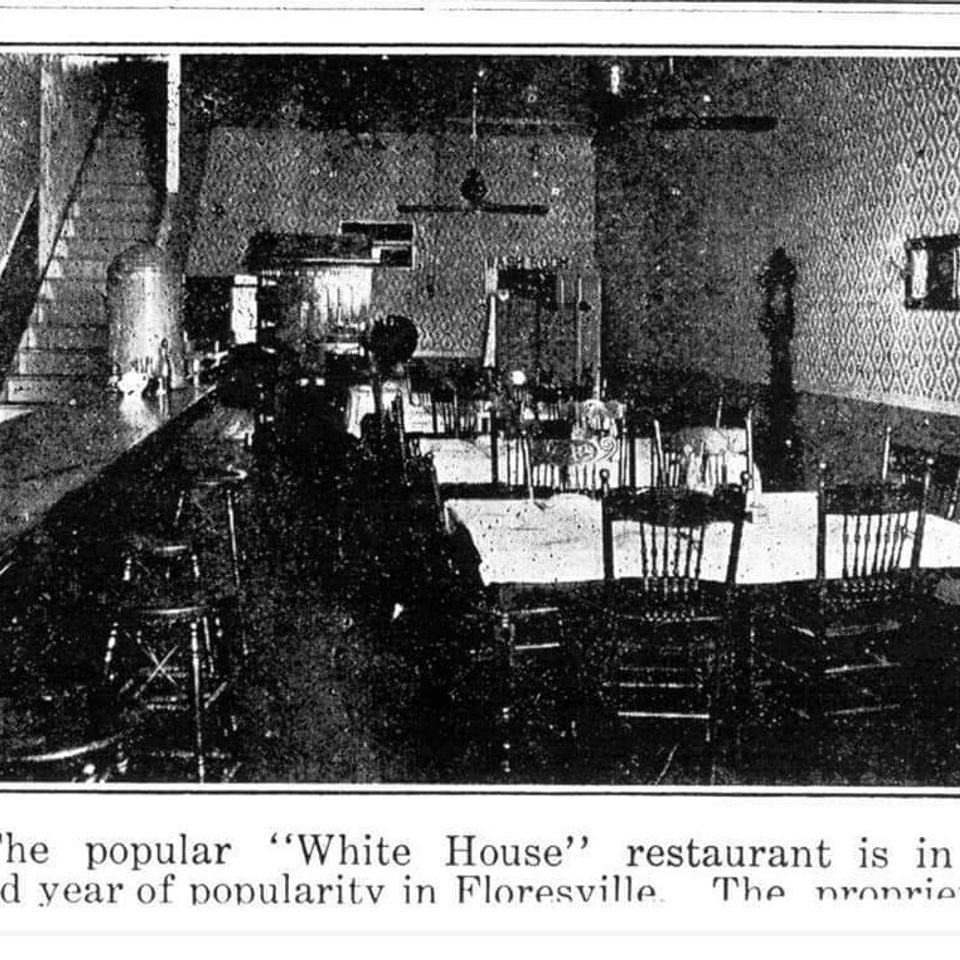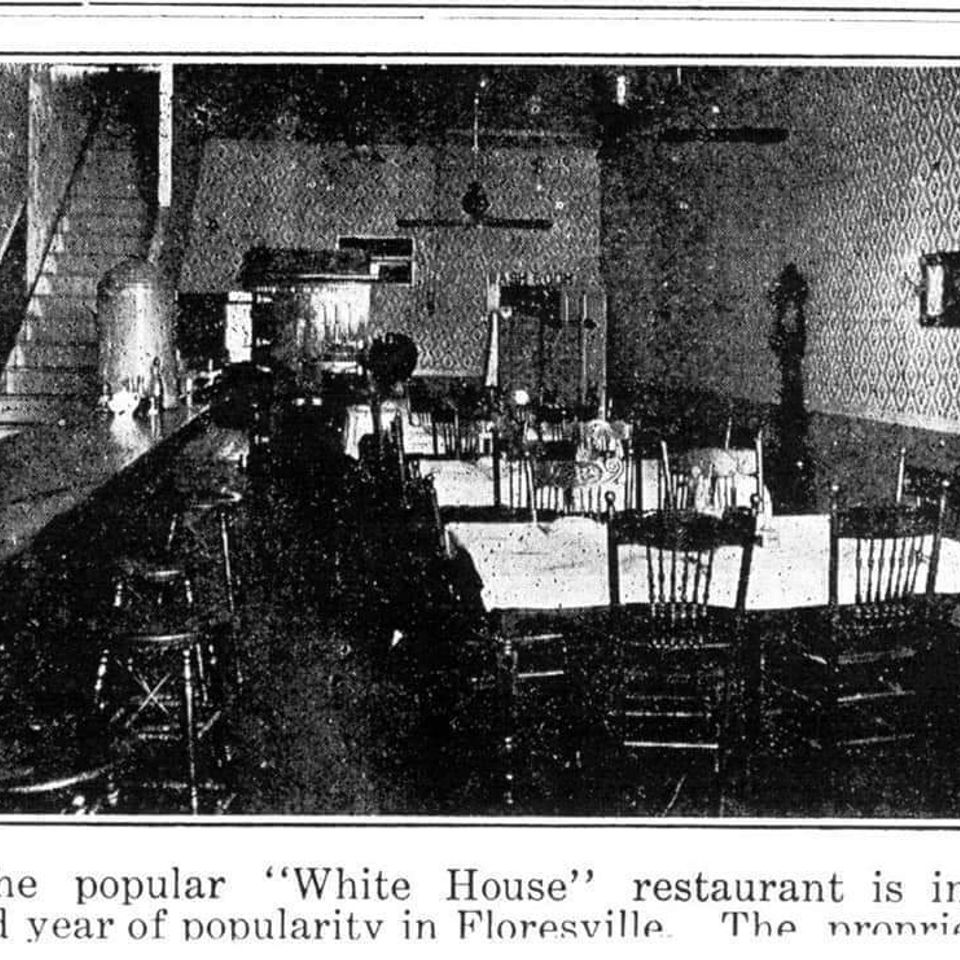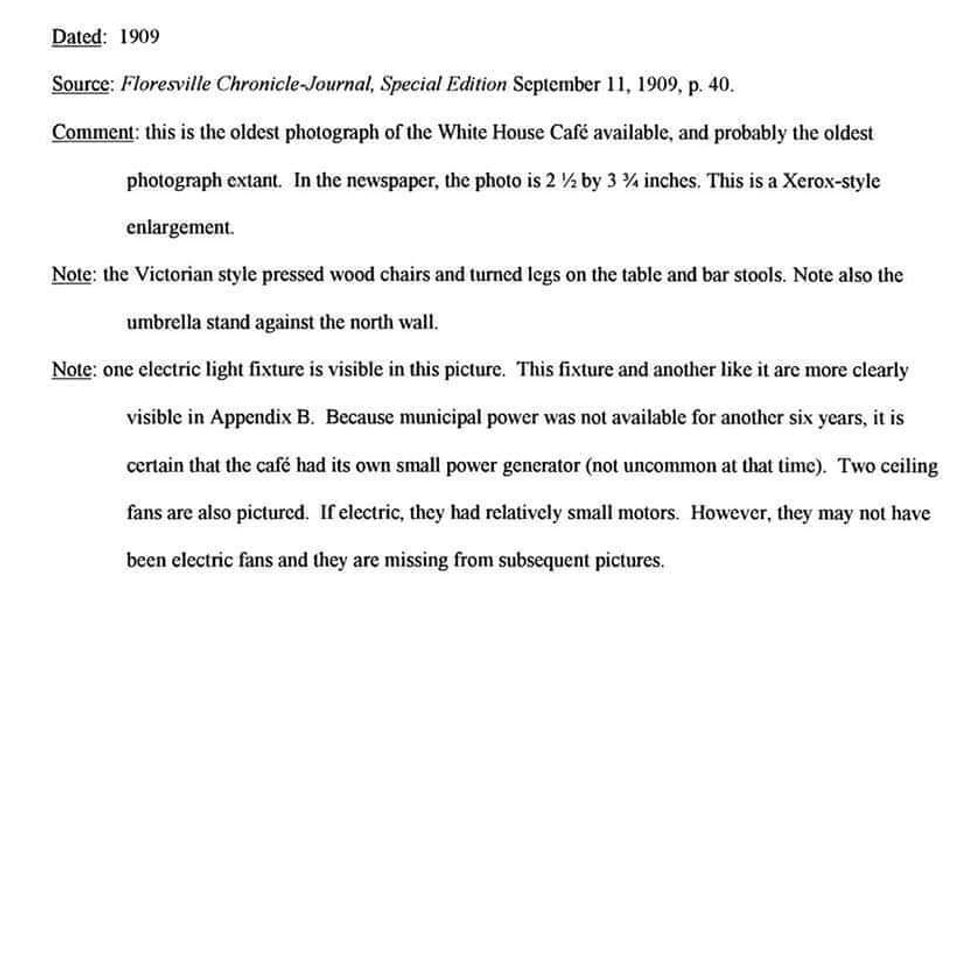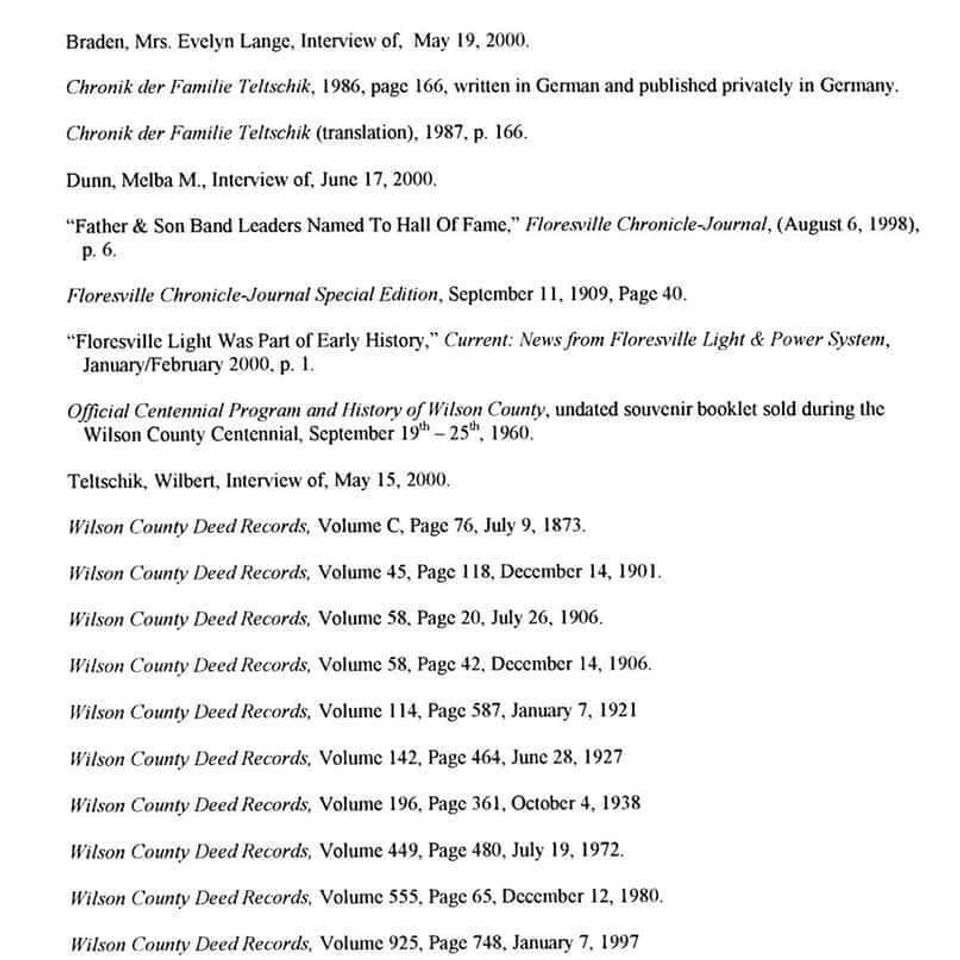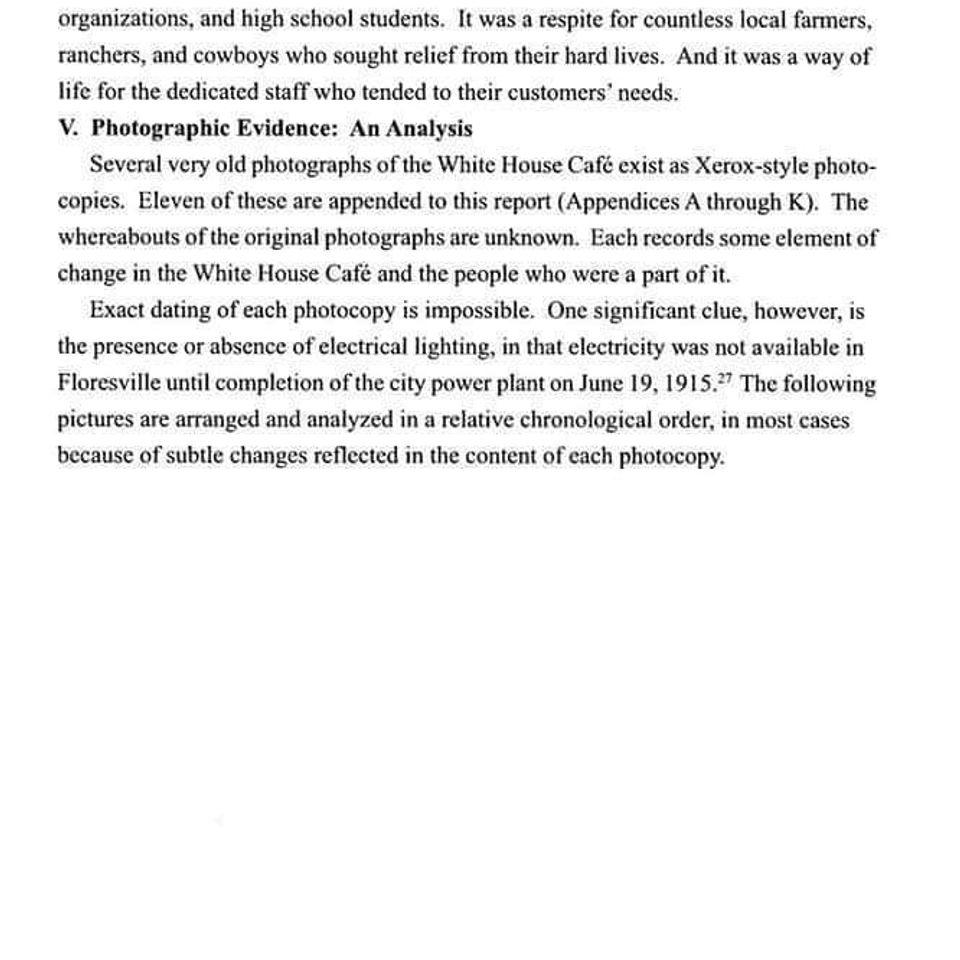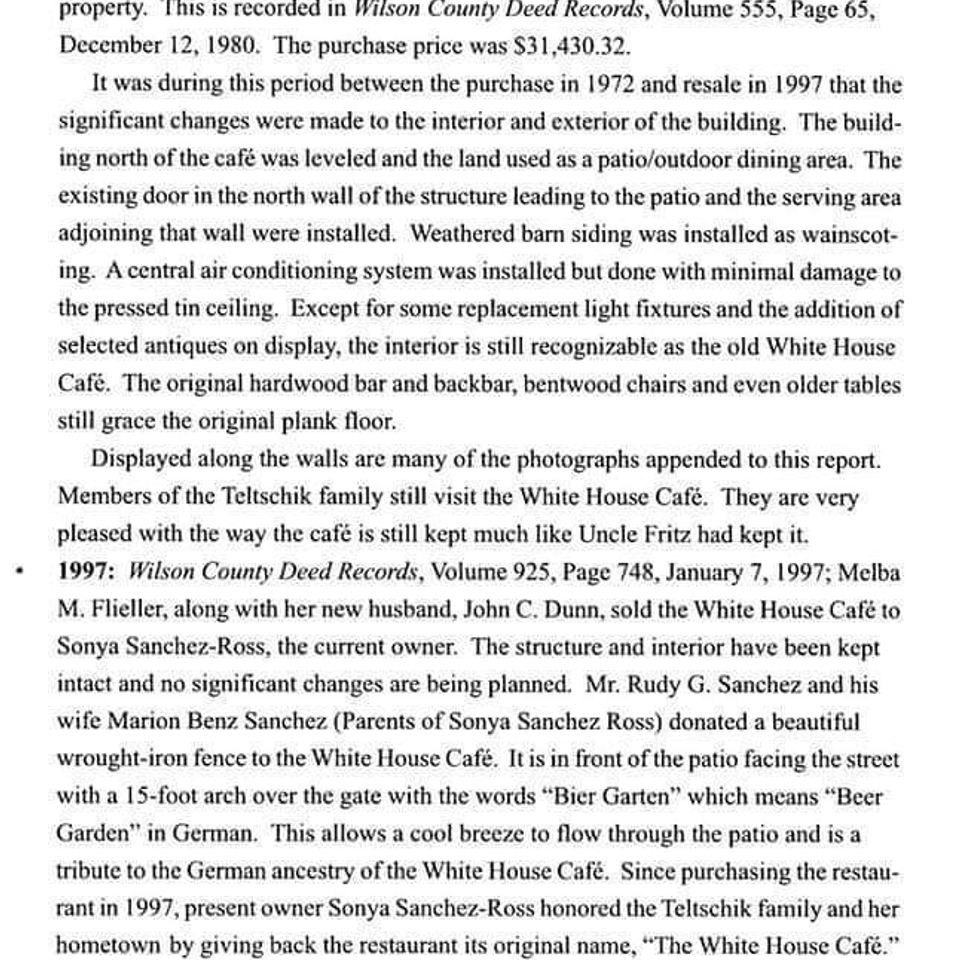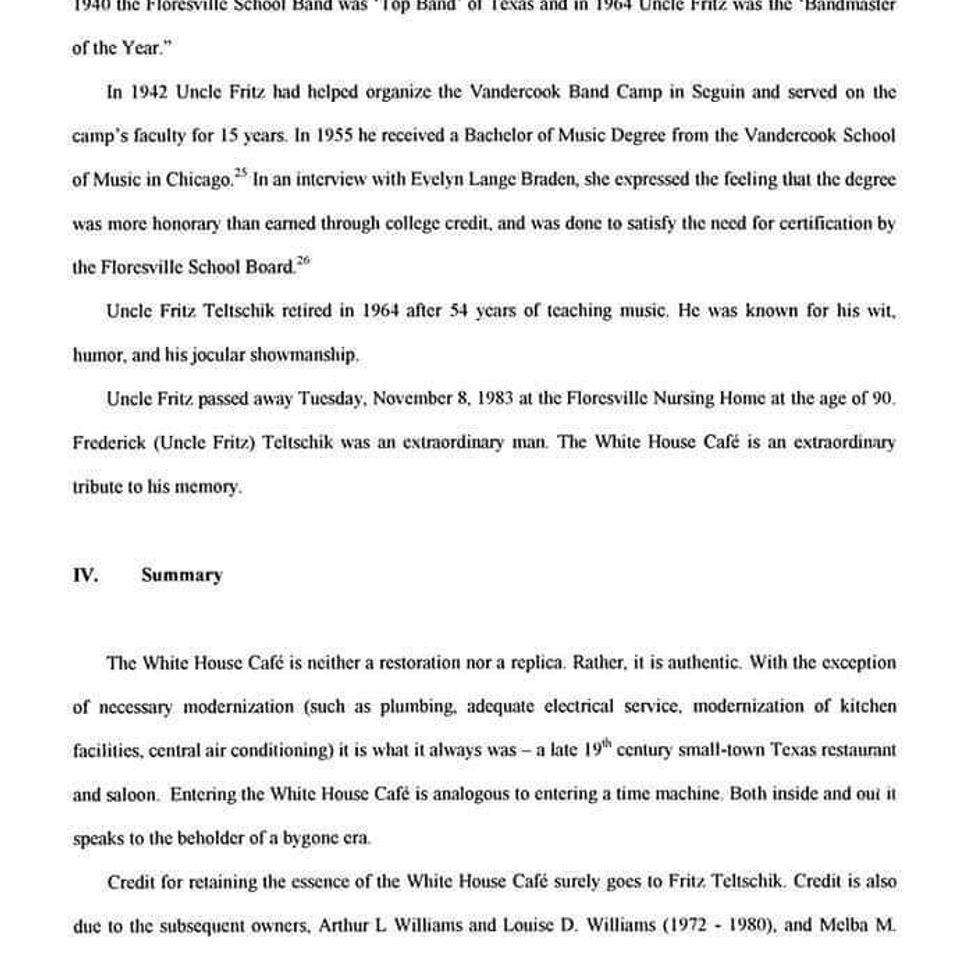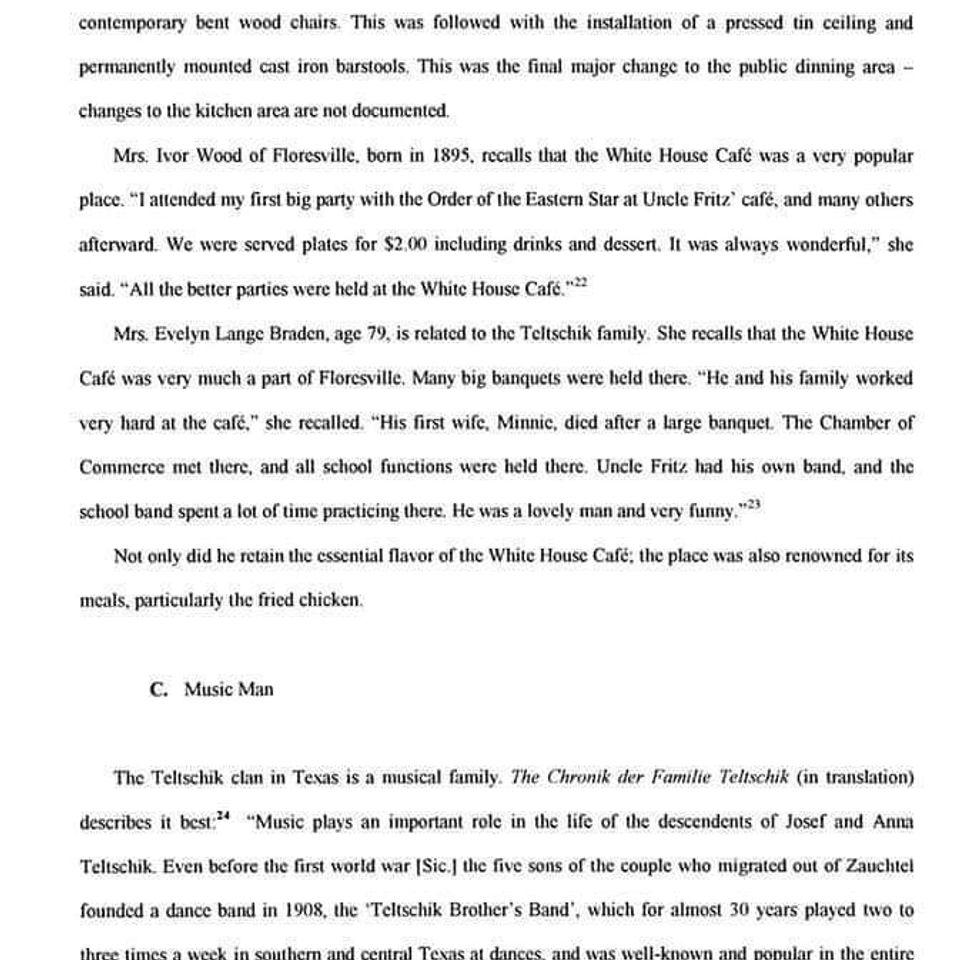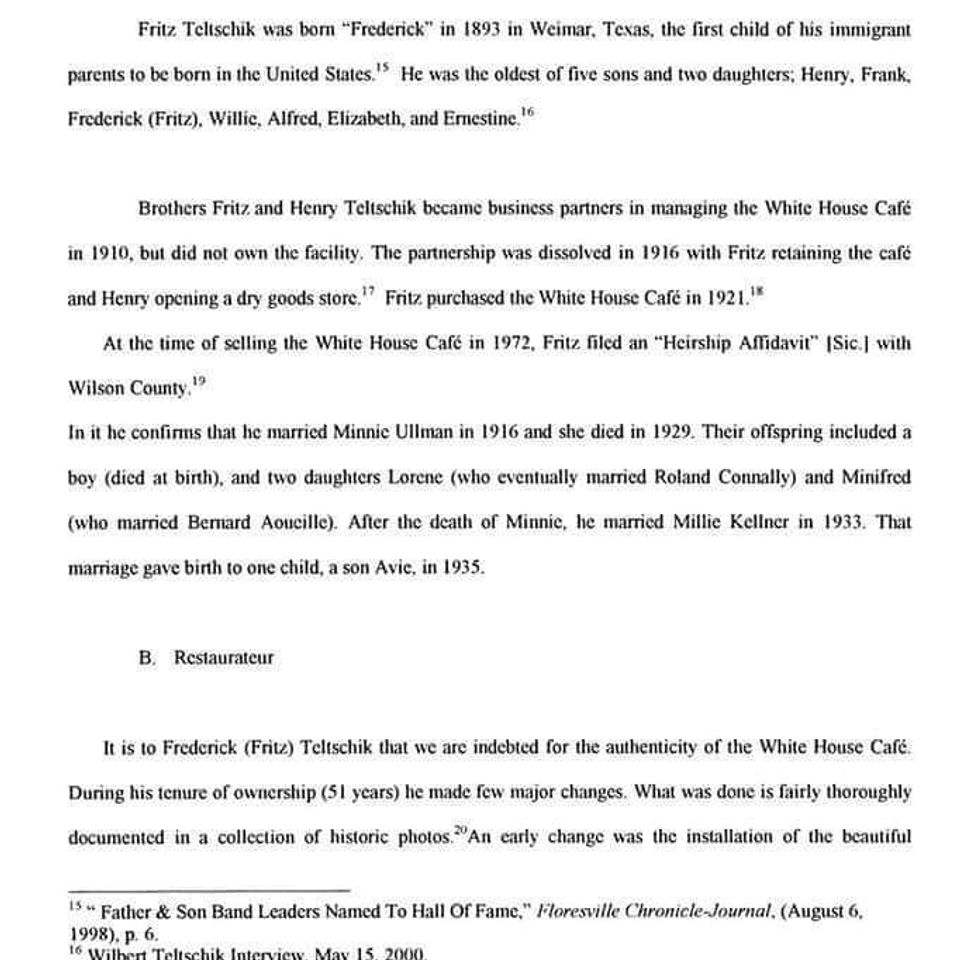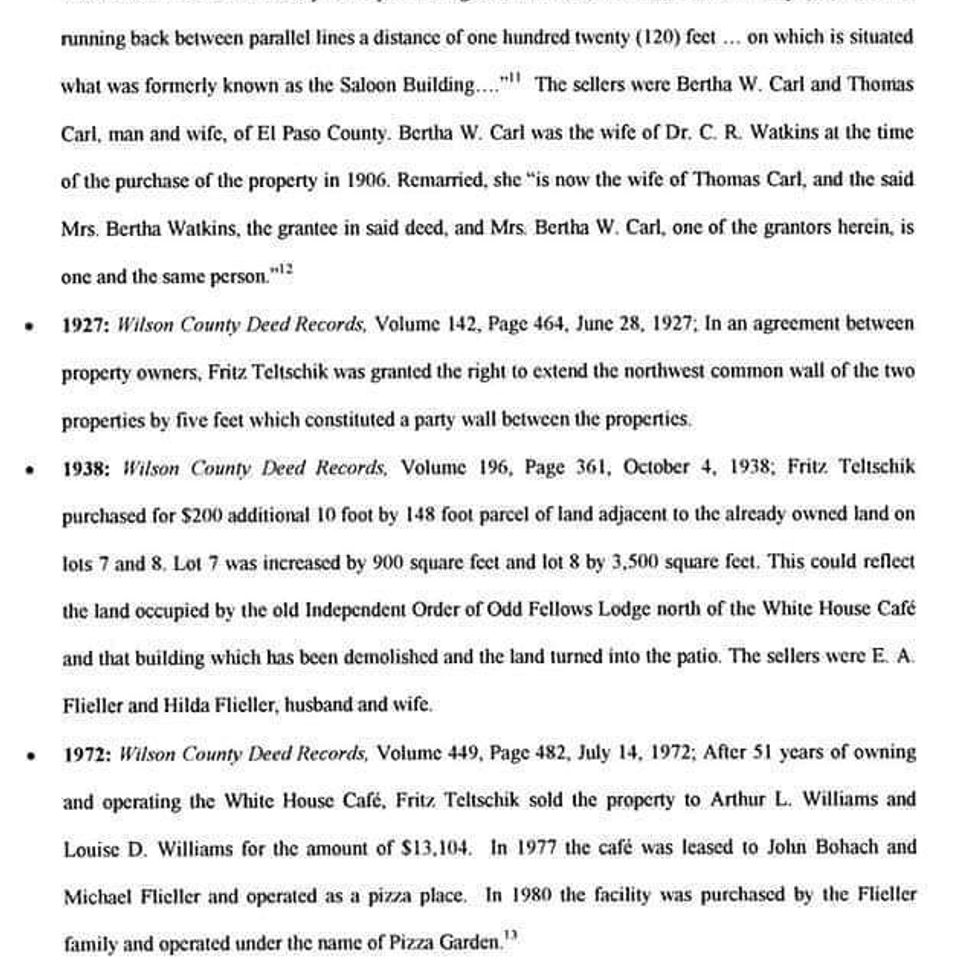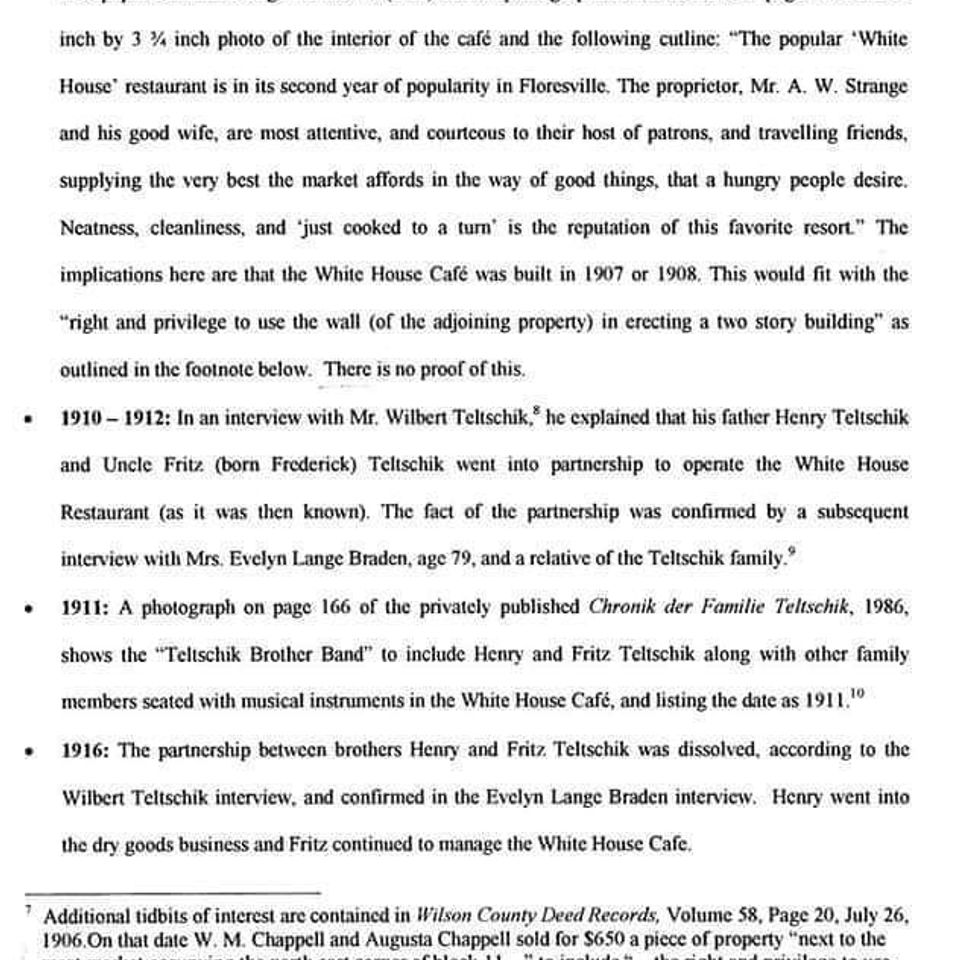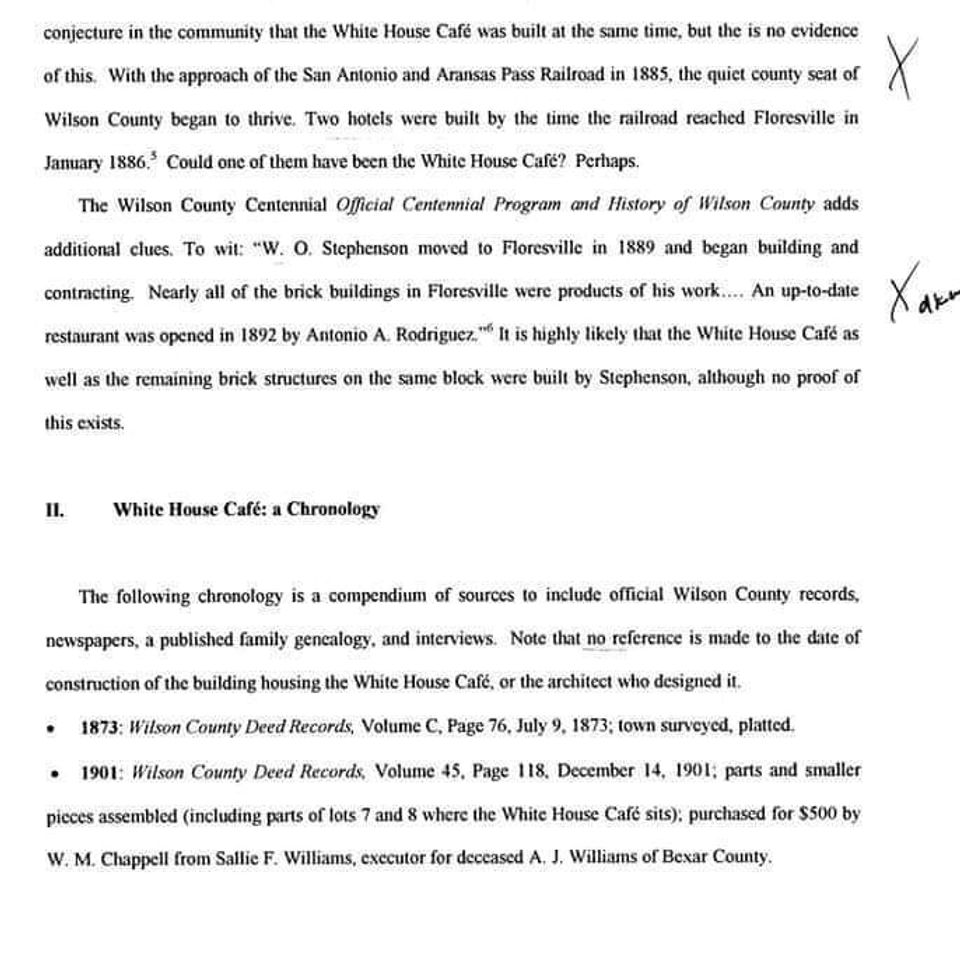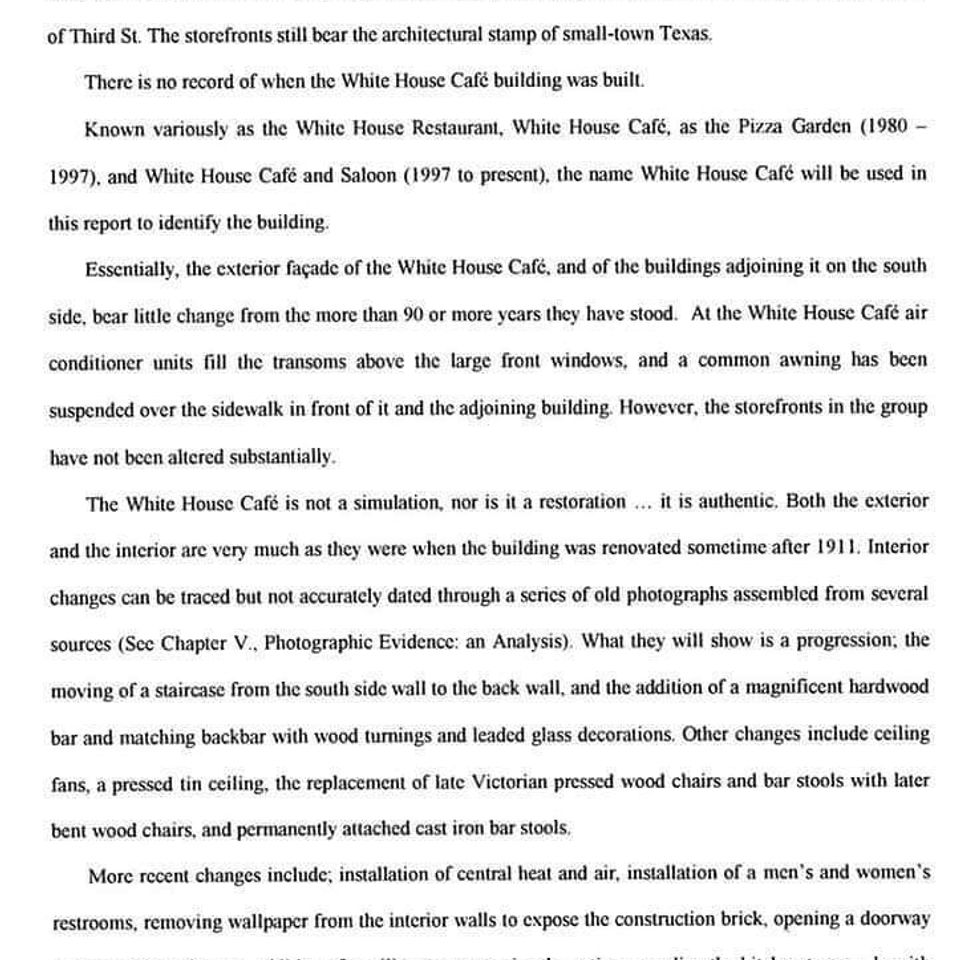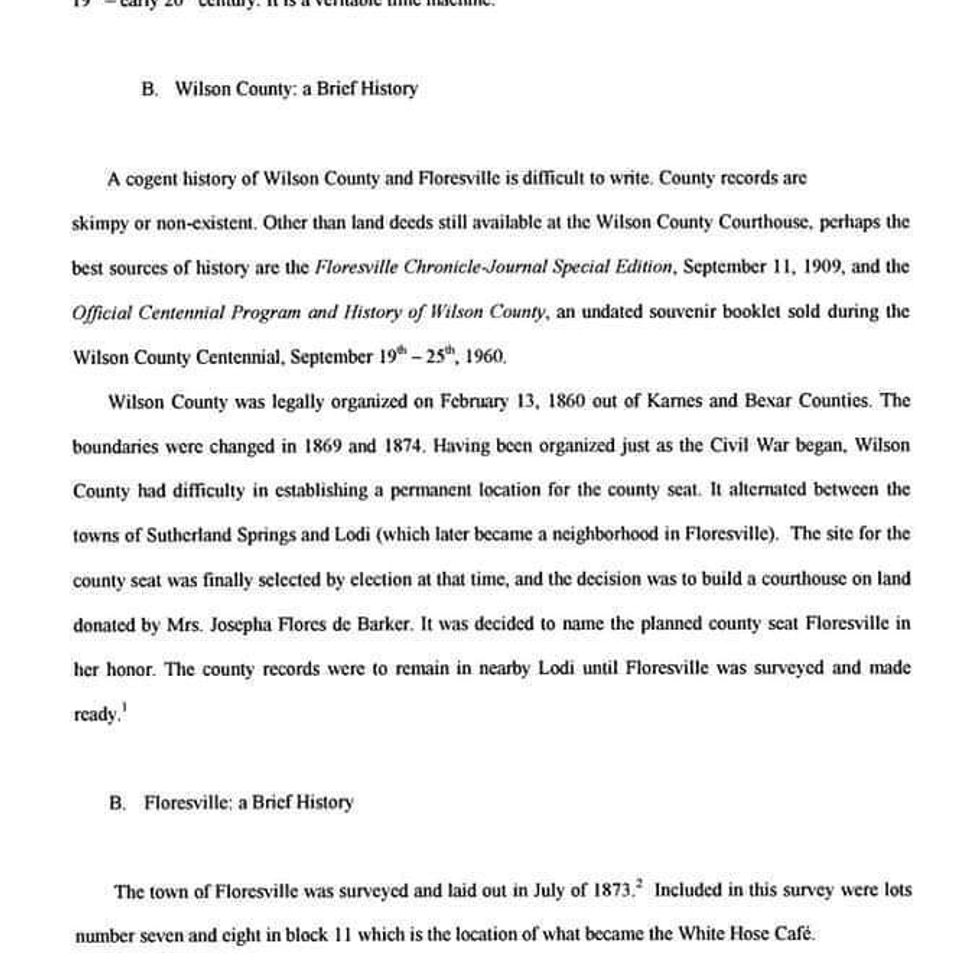Wilson County News, 2003
By Amy Seiford
The White House Café is in a building that is steeped in tradition. It started with the Teltschik family serving up chicken fried steak to hungry patrons who came into town from the country on the weekends during the early 1920s. Now the café offers a full-service menu and live music. But through it all, the café always has been a place where people gather for food, family, and fellowship.
Both Minifred Teltschik Aoueille, whose father was one of the original owners of the café, and current owner Sonya Ross remember eating at the café as children.
Aoueille remembers the throngs of people that would filter through the café to experience her mother Millie's chicken fried steak and listen to music lessons being held on the stairwell under the watchful eye of her father, Fritz Teltschik, who owned the restaurant for about 59 years.
While patrons could always depend on good food, according to Aoueille, it was the music that she remembers the most.
"There was music at the café all the time, and Daddy would start a parade through town at the drop of a hat," she said. "Everyone would come out for all of the holidays to see what he would do next. He was quite a character."
Music was such a part of the café that at one time Fritz Teltschik actually had a part in forming almost every musical group in town. The Floresville High School and Floresville muncipal bands were both organized at the café, and Aoueille remembers concerts in the garden, which is now the patio. The café also was the beginning of the Teltschik family band that would perform for customers every Saturday. The band is still 45 members strong today.
Teltschik also had a piano at the back of the café and sold sheet music and accessories out of a showcase cabinet where the kitchen now is located.
While she fondly remembers the food and music, the café was also home to Aoueille and her brother, Adadie Teltschik, and her sister, Lorene Connally. All three of the children lived above the café until they were married.
It also served as a boardinghouse with five to six rooms being rented out at any given time.
Aoueille's fondest memories were at Christmastime, when her family would drive to the Hill Country to find a fresh Christmas tree. Her father would hang Christmas lights on the front of the building and close the café to host parties, although he would never turn away a customer, much to her mother's chagrin.
"He would always tell my mother 'just one more customer won't hurt,'" Aoueille said. "He loved that café and could never leave it. He would even go back and sleep there at night after he had bought a house."
Although the Teltschiks sold the restaurant around 1972, Aoueille still enjoys going back to the café where the original antique bar, ceilings, and structure exist.
Current owner Ross has made sure to preserve the original integrity of the structure, partly so that the café can serve as a living history.
"This landmark is of great importance," Ross said. "All of the owners that have had the White House Café have worked hard to maintain the building and the items in it."
In fact, the White House Café is the only historic landmark of an ongoing business in Wilson County, according to Ross.
Although she said it is expensive to keep up older buildings, she feels they serve as a history lesson to those who pass through them.
"It is culturally significant and brings about historical awareness," she said. "You have to love these buildings and be willing to invest the time and money to keep these buildings up. I have a passion for culture and the history of this building."
It is that passion that has led Ross to work to get the café recognized as a recorded Texas historic landmark through the Texas Historical Commission. The designation is the highest honor the state bestows on a historic structure for architectural integrity and historical associations.
"This will give our community the opportunity to remember our town's past and have an appreciation for its heritage," Ross said.
A dedication ceremony will be held to commemorate the designation on Friday, Dec. 5, at 5:30 p.m. at the café. Speakers will include state Rep. Edmund Kuempel and Aoueille, who will speak about her experiences growing up in the café.
Although Ross has worked to preserve the structure, she has also made many changes after buying the café from Melba Dunn in January 1997.
One of the biggest changes has been the menu. When Ross bought the restaurant, it primarily served soup, sandwiches, and two hot plates. The café now has a full-service menu, complete with flame-grilled steaks and homemade desserts.
Ross said that while many restaurants in Floresville have come and gone, the key for the White House Café has been consistency, and a sense of history.
Ross takes pride in all of the food being homemade and in buying all of her meats from local vendors such as Baumann's and Beatrix.
One thing that Aoueille and Ross have in common is that the café has continued to be a family affair. All of the desserts at the café are made by Ross' mother, Marion Benz Sanchez, while her father, Rudy Sanchez, is a bartender. Her husband, Bret, also bartends on the weekends and for special events.
"It's because of my parents that I am able to do this," she said.
Ross also is trying to continue the tradition of having a friendly atmosphere by featuring live music on Friday and Saturday nights on the patio.
"This café offers an ambience that can't be duplicated," she said. "It is the only dining and entertainment restaurant in Floresville, and I believe that you get a lot for your buck."
Both Aoueille and Ross believe that the White House Café will continue to flourish for many generations to come.
"It is just a wonderful place," Aoueille said.
